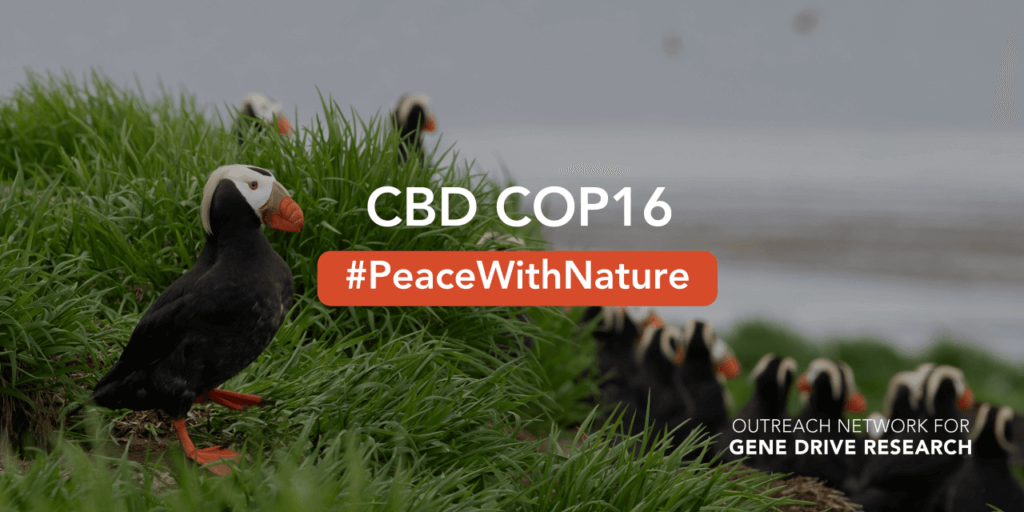
Blog – 15 November 2024
COP 16 highlights: A new path for peace with nature
...the Convention and the implementation of the Kunming-Montreal Global Biodiversity Framework (KMGBF). A key highlight of COP 16 was the growing focus on the interlinkages between biodiversity and health. Parties approved a Global Action...
Read more
Blog – 07 November 2024
What do genetically modified mosquitoes look like?
...find out more about genetically modified mosquitoes and how they could contribute to reduce malaria transmission. https://www.youtube.com/watch?v=aQG97URrEOU For more information about Target Malaria’s work at the CDC Foundation, click here....
Read more
Blog – 25 October 2024
Embracing innovation in science reporting: My journey and reflections
...opportunities. With increased access to information and platforms, there’s a rising demand for insightful reporting on health innovations. Social media and online platforms have transformed how we disseminate information, allowing...
Read more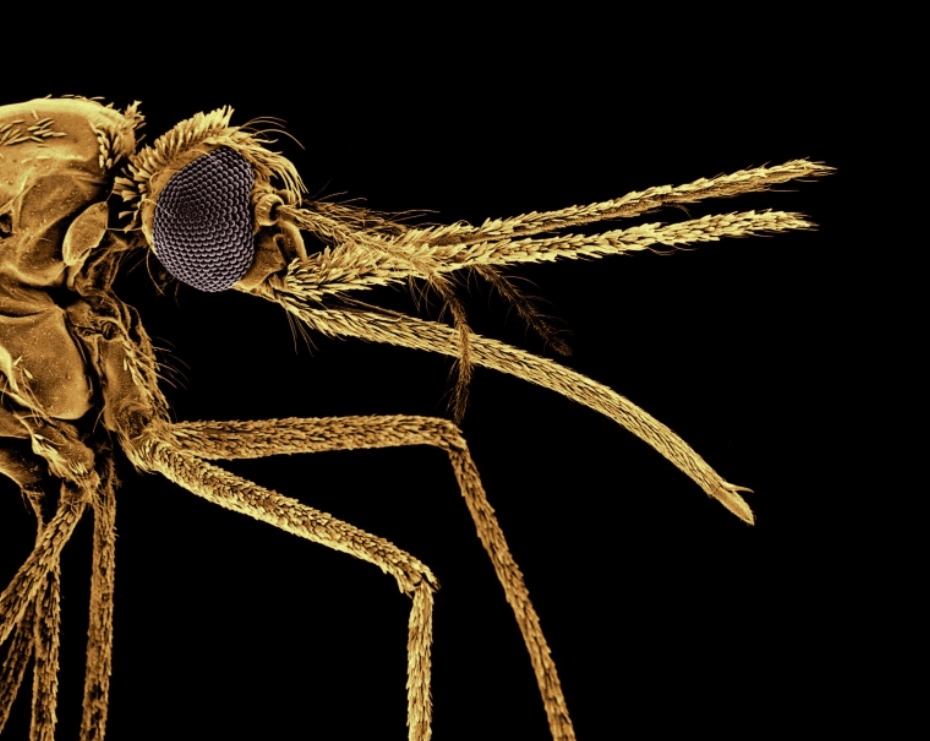


Media Coverage – 08 October 2024
Professor Abdoulaye Diabaté’s frank conversation with Bill Gates
Read more

Blog – 03 October 2024
How to dissect a mosquito
...are pointing at some of the oocysts, indicating the mosquito was infected with the malaria parasite. https://www.youtube.com/watch?v=AIF8_ohJ7yY To find out more about Target Malaria’s work at the CDC Foundation, please...
Read more
Press Release – 27 September 2024
Finishing off Malaria: Professor Abdoulaye Diabaté’s frank conversation with Bill Gates
...streaming site Netflix. ENDS For more information: Netflix documentary series: https://www.netflix.com/fr-en/title/81609333?trkid=258593161&s=i&vlang=en Prof. Abdoulaye Diabaté’s blog post about the show: https://targetmalaria.org/latest/news/finishing-off-malaria-my-conversation-with-bill-gates/ [1] World Malaria Report (2023), WHO [2] The WHO Global...
Read more

Media Coverage – 16 September 2024
Journée internationale du Moustique 2024 sur Info Matin
Read more

Spokeperson – 16 September 2024
Jean Windéyam Birba
Jean Windéyam Birba is National Stakeholder Engagement Manager for Target Malaria Burkina Faso at the Institut de Recherche en Sciences de la Santé (IRSS)/Centre Muraz in Bobo-Dioulasso, Burkina Faso. A...
Read more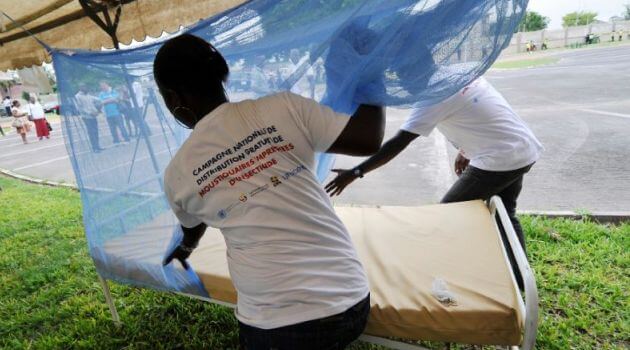
Media Coverage – 16 September 2024
Experts discuss role of gene modification in combating malaria
Read more
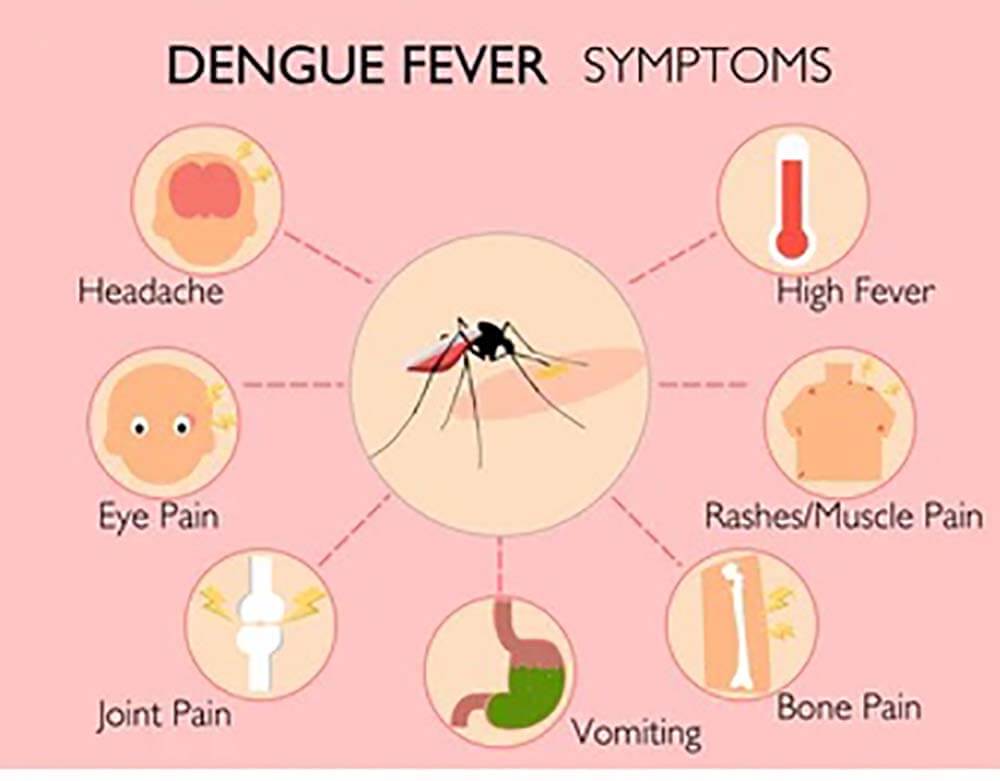
Media Coverage – 16 September 2024
Dengue or malaria? Distinguishing mosquito-borne diseases?
Read more
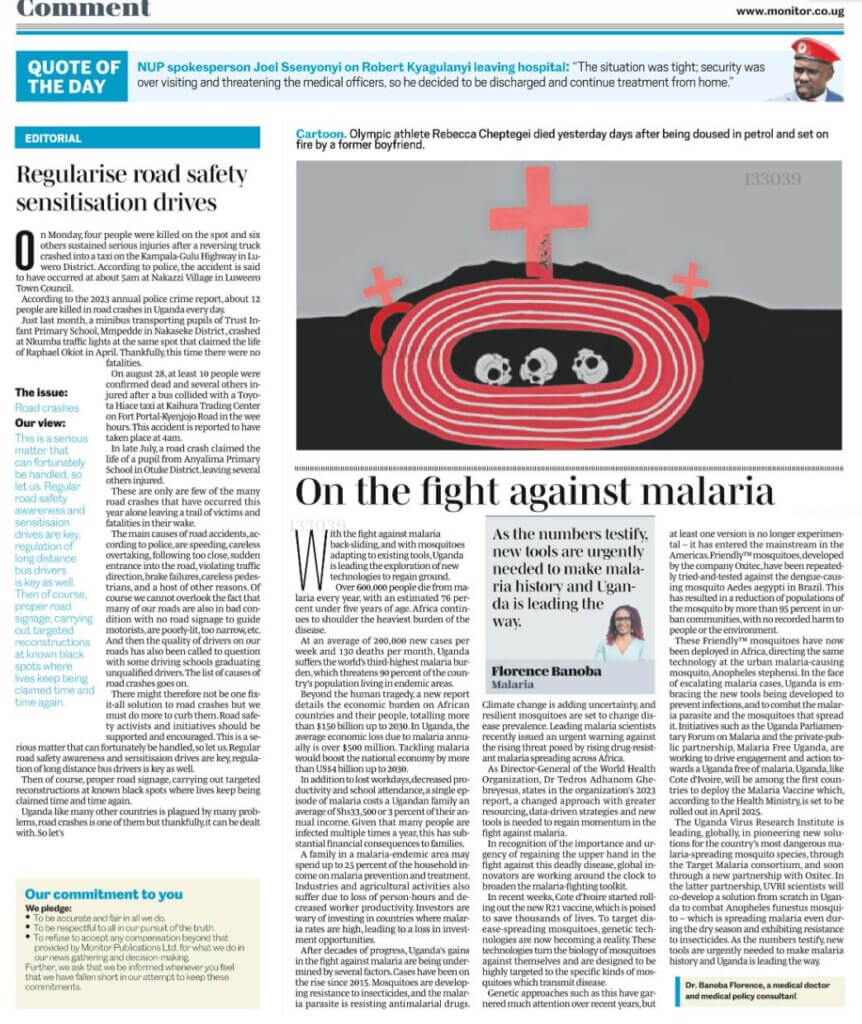

News – 05 September 2024
Burkina Faso’s National Biosafety Agency states its support to Target Malaria
...Malaria project), and Aedes mosquitoes, the vectors of dengue fever”. Full release (in French): https://www.infosciencesculture.com/en/node/219 Target Malaria supports and scrupulously respects stringent, competent, responsible and transparent regulations to advance research into...
Read more

Media Coverage – 20 August 2024
Pr Abdoulaye Diabaté, investigateur principal du projet Target Malaria Burkina Faso : « Nous devrions être en mesure d’éliminer le paludisme dans un futur plus ou moins proche »
Read more
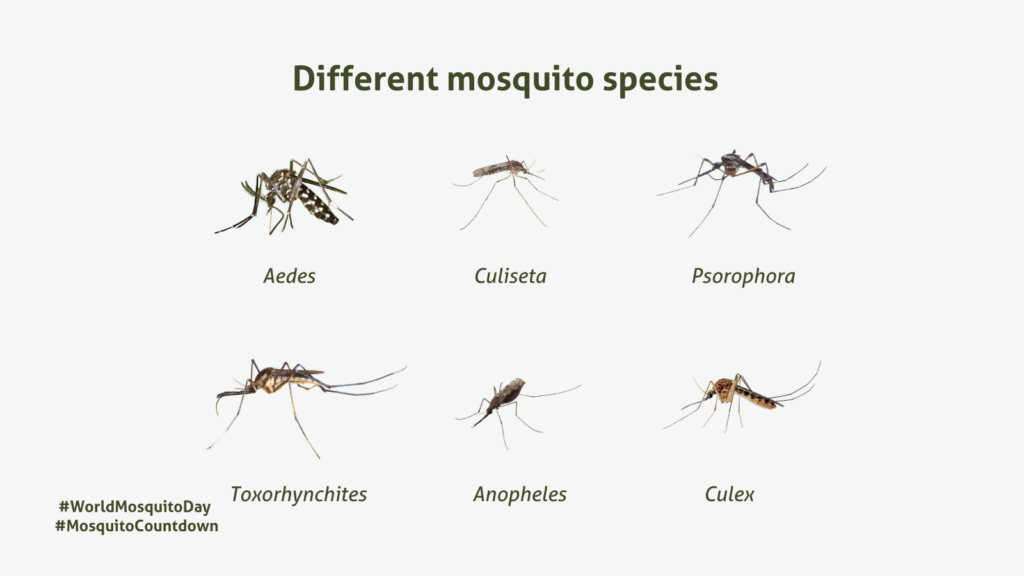
Media Coverage – 20 August 2024
Mosquito-Borne Diseases Rise Amidst Climate Change, Experts Warn
Read more
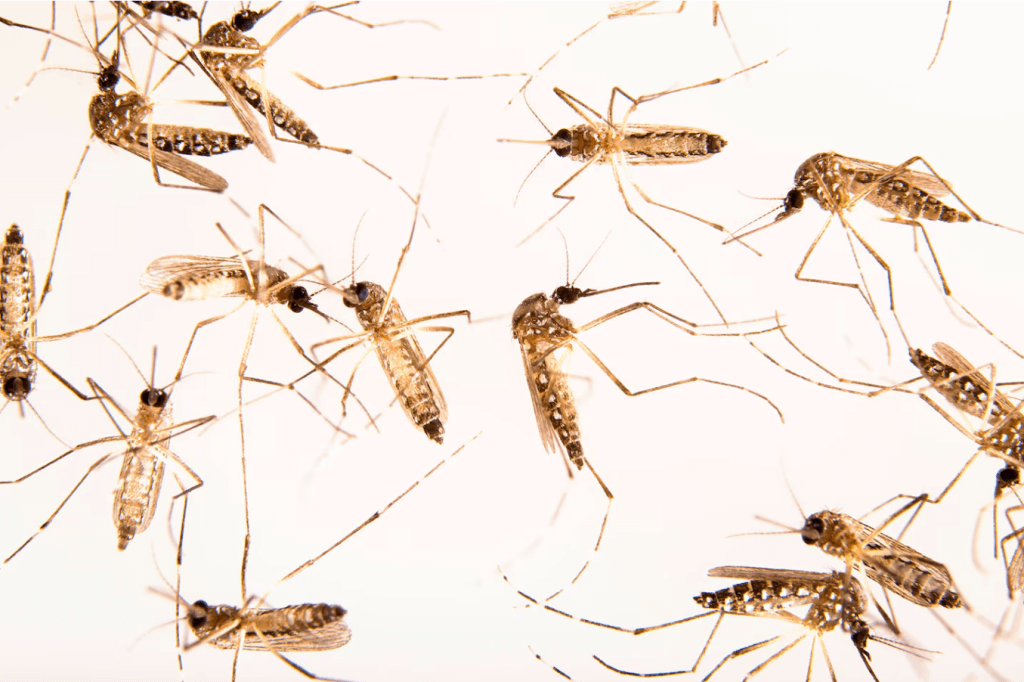
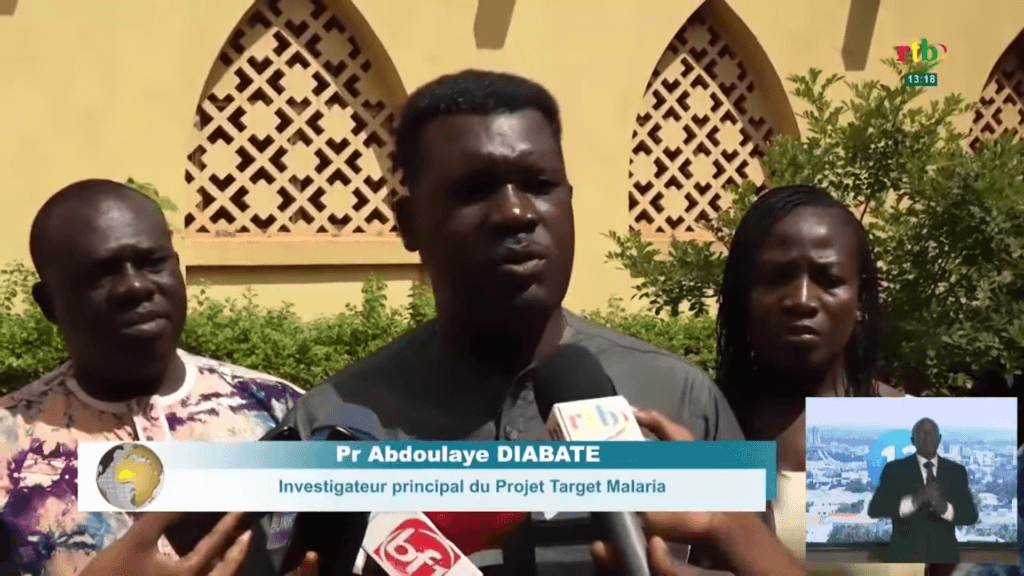
Media Coverage – 21 July 2024
Une délégation de l’Académie des Sciences visite le site de recherche du projet « Target Malaria »
Read more
Jobs – 15 July 2024
Research Associate in Genetic Vector Control
...applicants on the quality of their work, not the journal impact factor where it is published. For more information, see https://www.imperial.ac.uk/research-and-innovation/about-imperial-research/research-evaluation/ The College believes that the use of animals in research is...
Read more
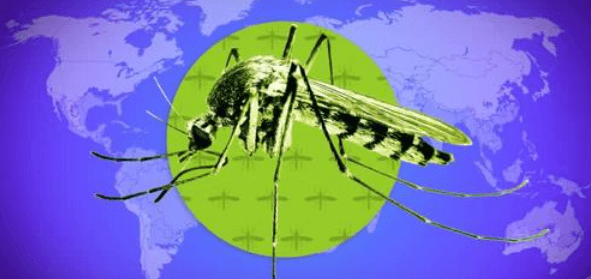
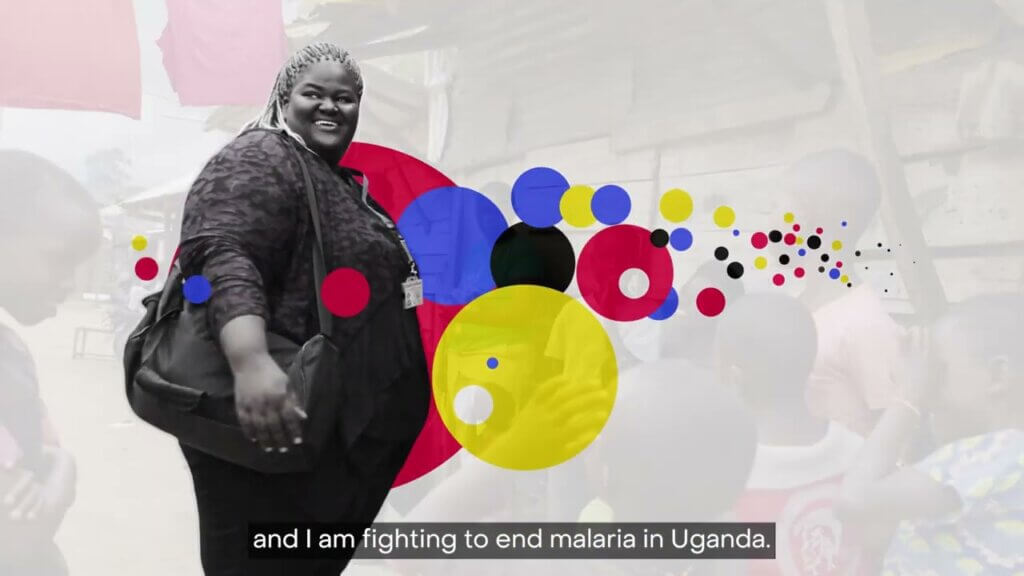


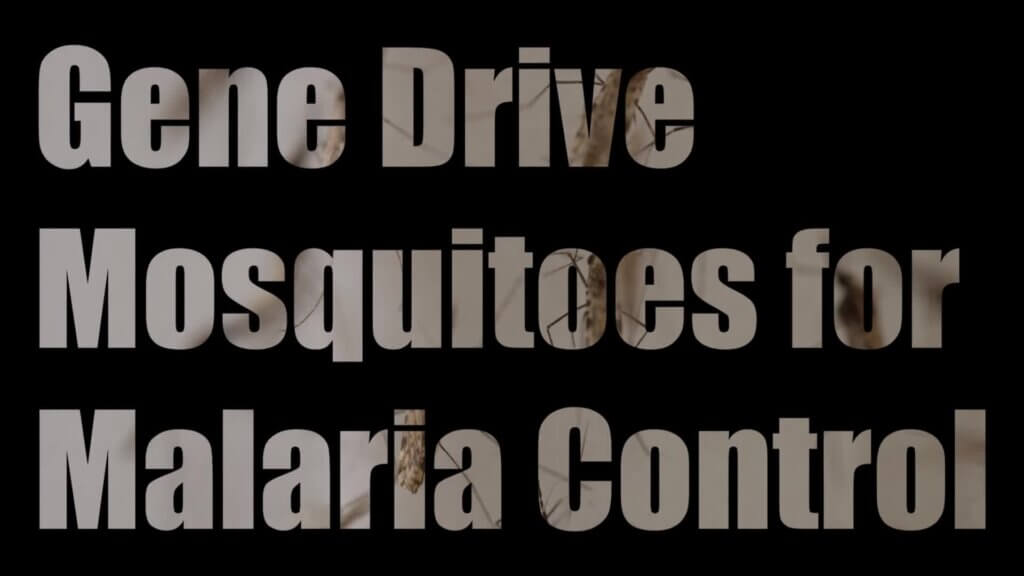
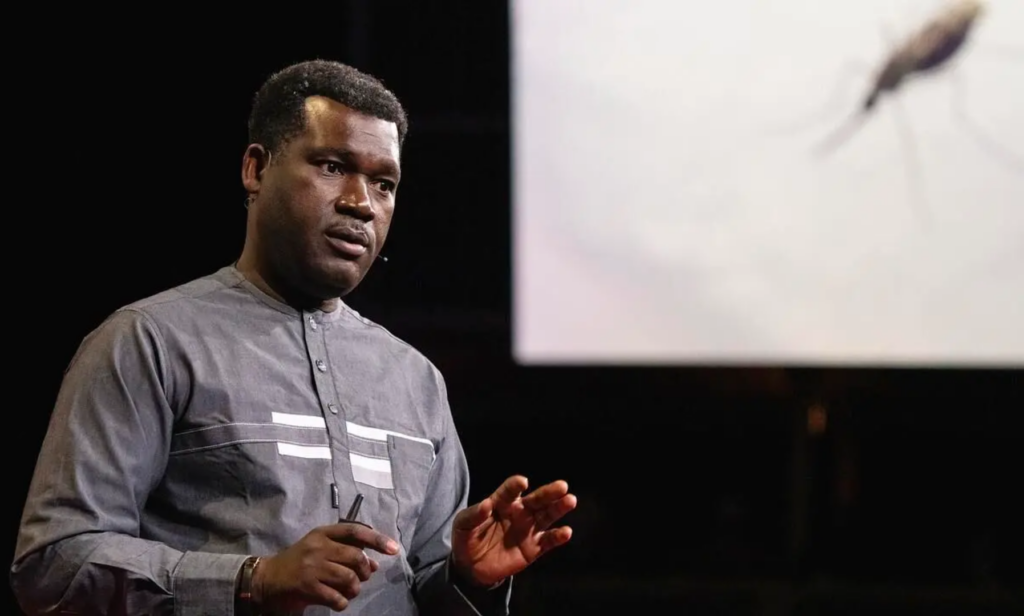
Media Coverage – 29 April 2024
How expensive it is to be poor Prof. Abdoulaye Diabaté inspires global action against malaria at TED2024
Read more
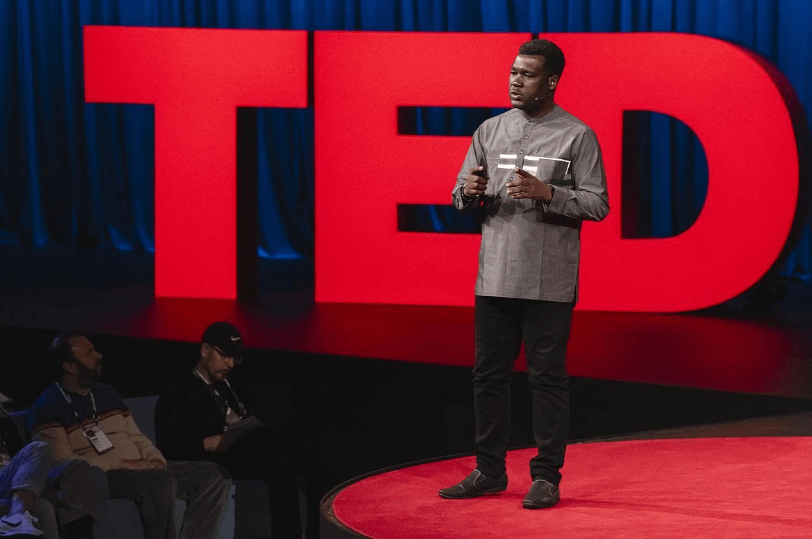
Press Release – 25 April 2024
How expensive it is to be poor: Prof. Abdoulaye Diabaté inspires global action against malaria at TED2024
...of genetic technologies, such as gene drive. www.targetmalaria.org Target Malaria receives core funding by the Bill & Melinda Gates Foundation and Open Philanthropy. The lead grantee organisation...
Read more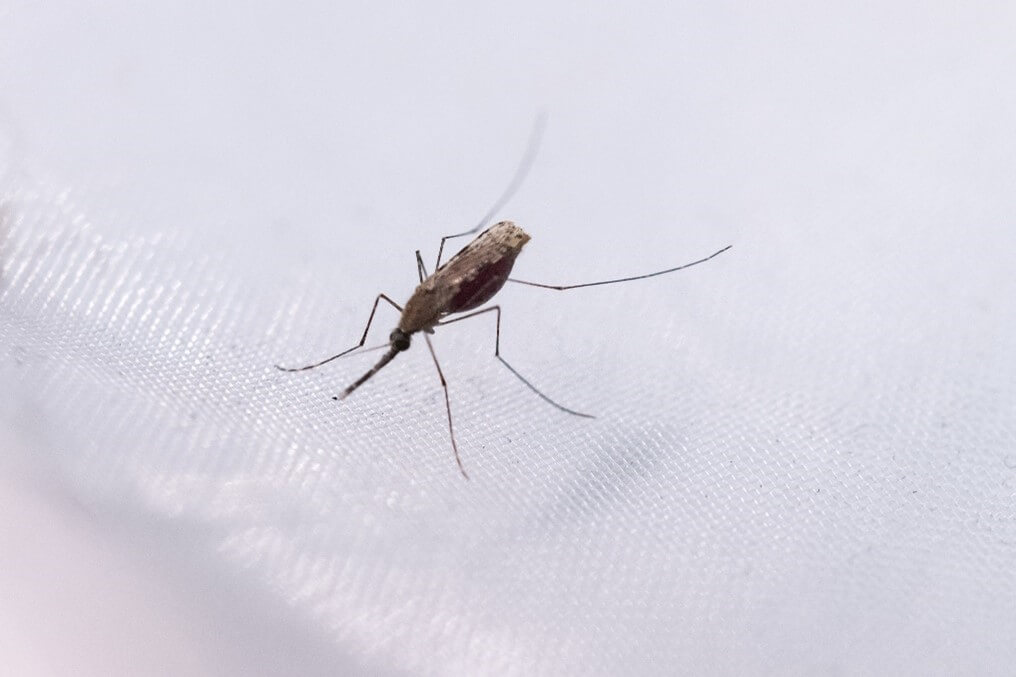
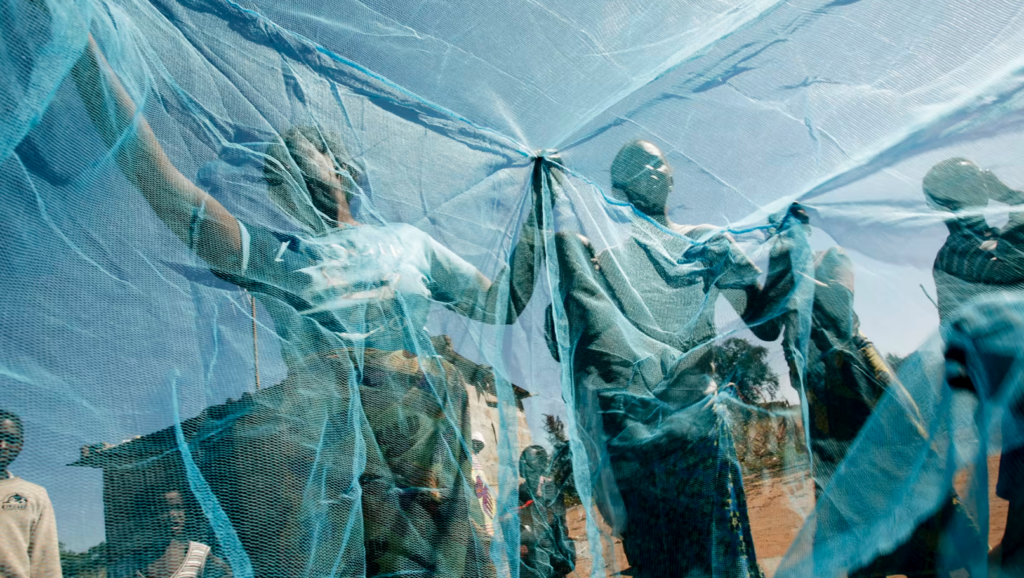
Media Coverage – 25 April 2024
La lucha contra la malaria en África, en un punto crucial por la aprobación de dos vacunas
Read more
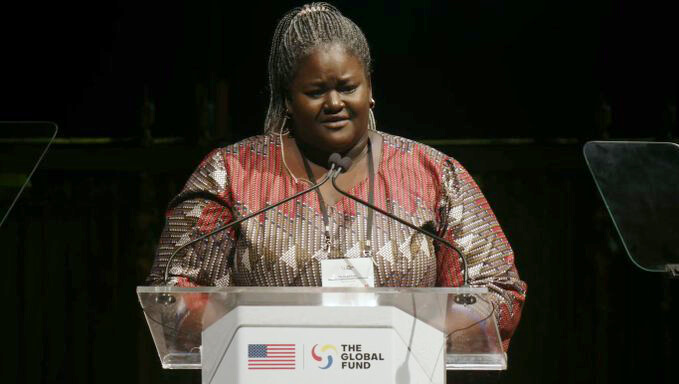
Media Coverage – 25 April 2024
Embracing Inclusivity, Collaboration, And Equity To Accelerate Progress Towards A Malaria-Free World
Read more

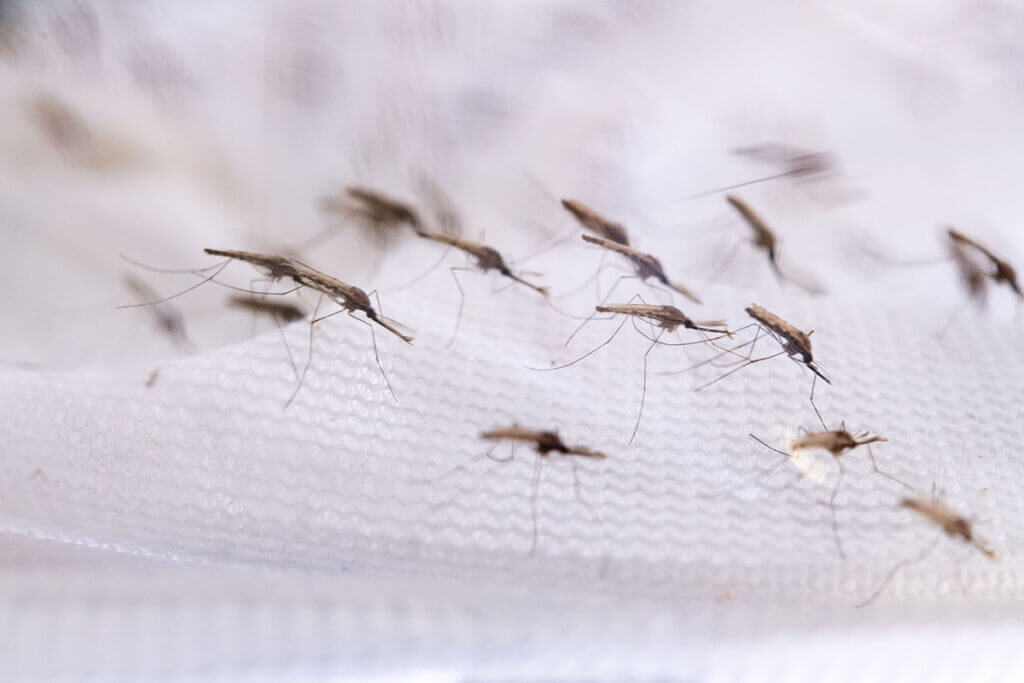

Press Release – 12 April 2024
Africa’s Champion Against Malaria, Professor Abdoulaye Diabaté on stage at TED2024
...all areas of our work, creating a path for responsible research and development of genetic technologies, such as gene drive. www.targetmalaria.org Target Malaria receives core funding by the Bill &...
Read more
Media Coverage – 12 April 2024
Africa’s Champion Against Malaria, Professor Abdoulaye Diabaté on stage at TED2024
Read more
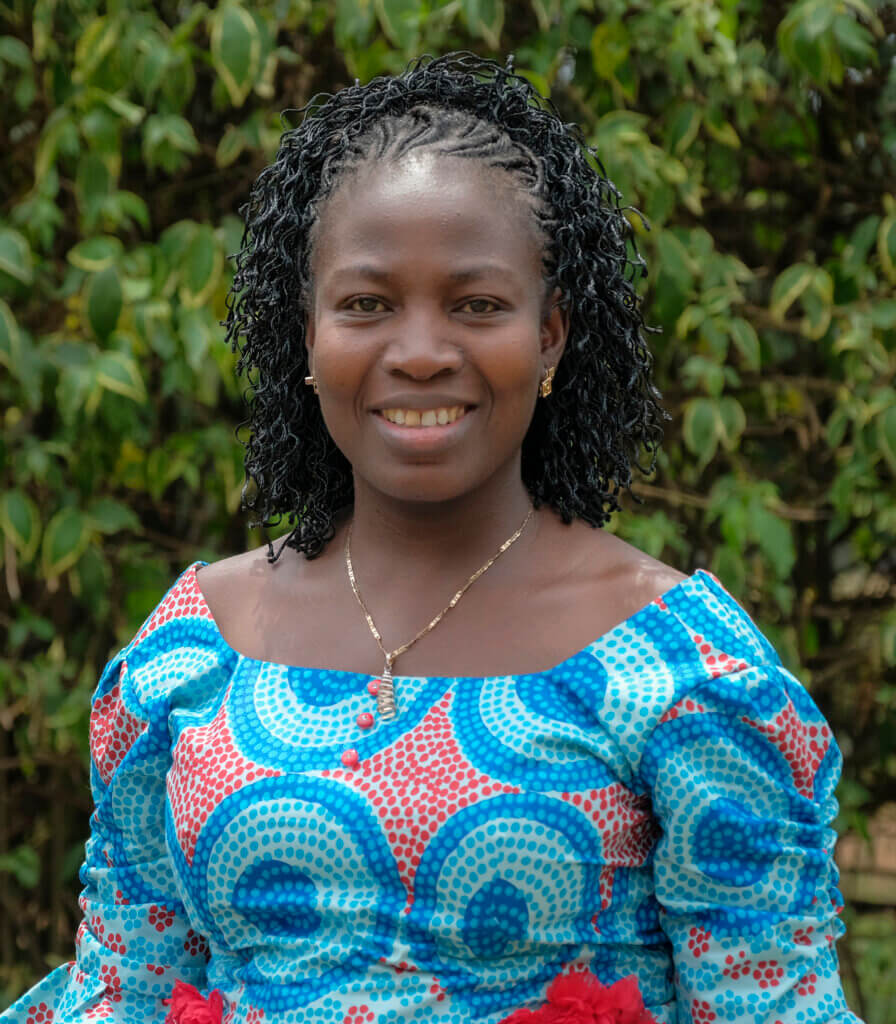
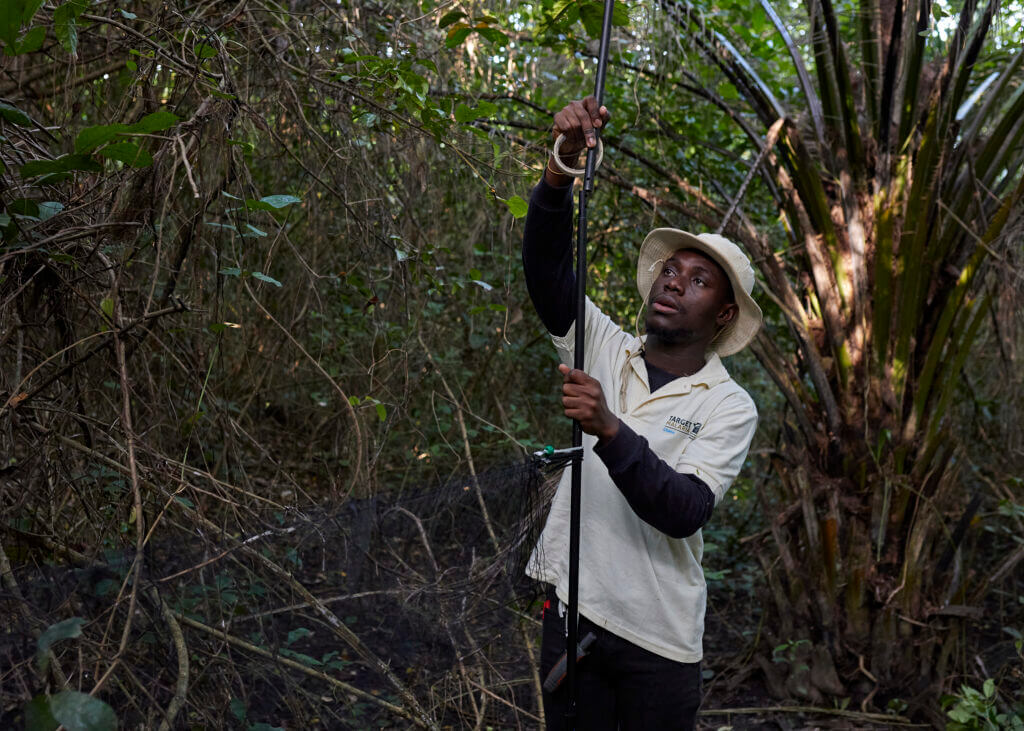
Blog – 12 February 2024
Our Work in Ghana
...production proved to be an invaluable opportunity for skill development and knowledge sharing. https://www.youtube.com/watch?v=SiZiXz00XvA https://www.youtube.com/watch?v=4GOjf1YF1Z8 You can find “Our Work in Ghana” here on YouTube. Watch the video in Twi. ...
Read more
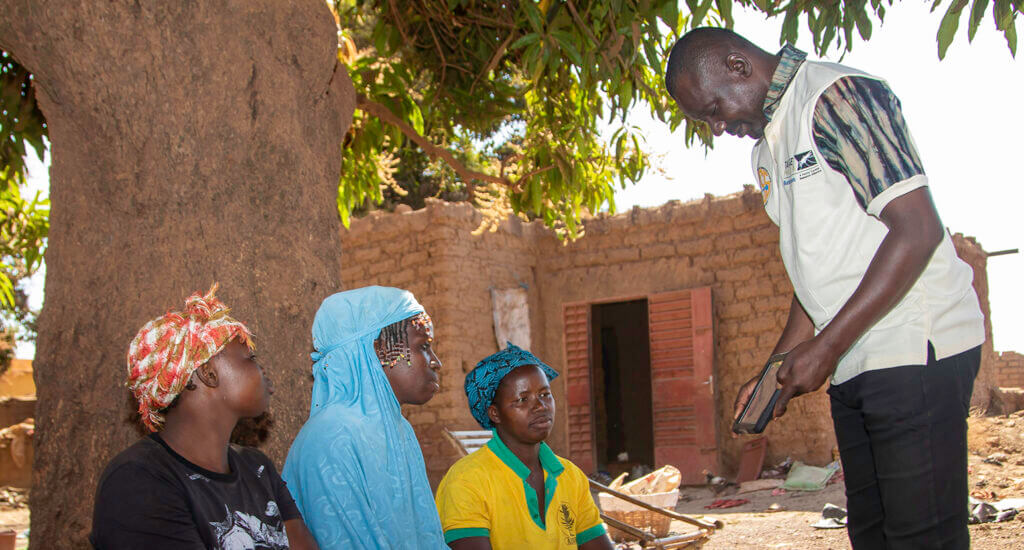
Blog – 11 January 2024
Target Malaria’s stakeholder engagement approach
...international organisations with interest in our work. We believe the communities knowledge, priorities and expectations help inform our research and ensure our technologies are effective and meet their needs. https://www.youtube.com/watch?v=OVQvnTehOiI...
Read more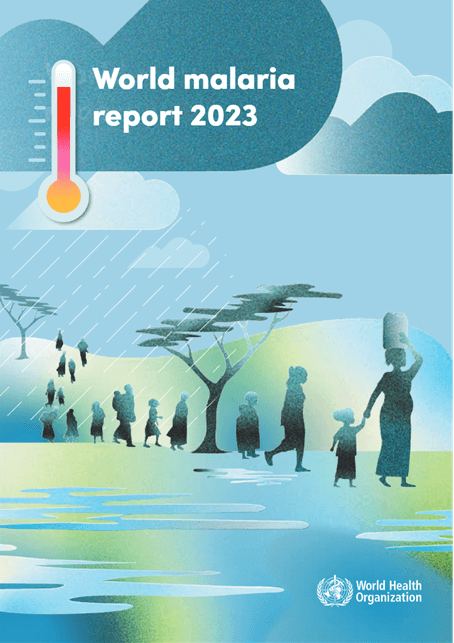
Media Coverage – 03 January 2024
World Malaria Report 2023: A call for concerted action to address growing threats
Read more
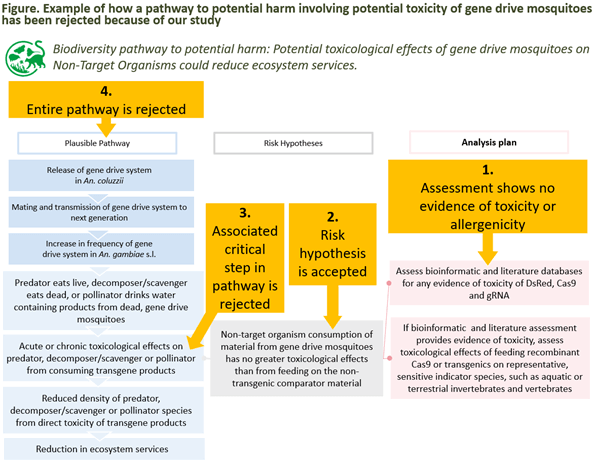
Blog – 14 November 2023
Assessment of the potential for toxicity and allergenicity from our gene drive mosquitoes
...West Africa of our population suppression gene drive for malaria vector control, should they be approved, would not result in any increased allergenicity or toxicity in humans and animals. ...
Read more
Blog – 31 October 2023
Inclusive Health Systems: The Key to Addressing Global Health Challenges
...advocacy organization for global health and the fight against HIV, tuberculosis, and malaria. Its mission is to engage European decision-makers in investing and getting involved with the Global Fund: www.friendseurope.org. ...
Read more
Media Coverage – 15 October 2023
Entretien au 7Infos du 15 octobre 2023 sur BF1TV avec le Prof. Abdoulaye Diabaté
Read more


Media Coverage – 29 September 2023
The Gamble: Can Genetically Modified Mosquitoes End Disease?
Read more
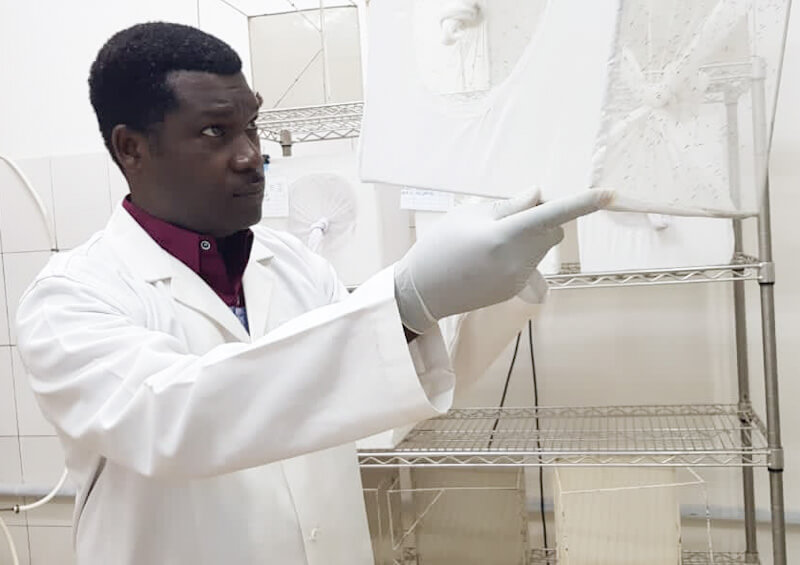
Press Release – 13 September 2023
Burkina Faso Professor Recognised as Falling Walls Winner in Science & Innovation Management 2023
...and Parasitology at Burkina Faso’s Research Institute in Health Sciences (Institut de recherche en sciences de la santé -IRSS), his work holds great promise in the fight against malaria transmission....
Read more
Page – 29 August 2023
United Kingdom
In the United Kingdom, Target Malaria’s collaborating partners are Imperial College London and the University of Oxford, both consistently ranked among the world's top universities. Context of our work Imperial...
Read more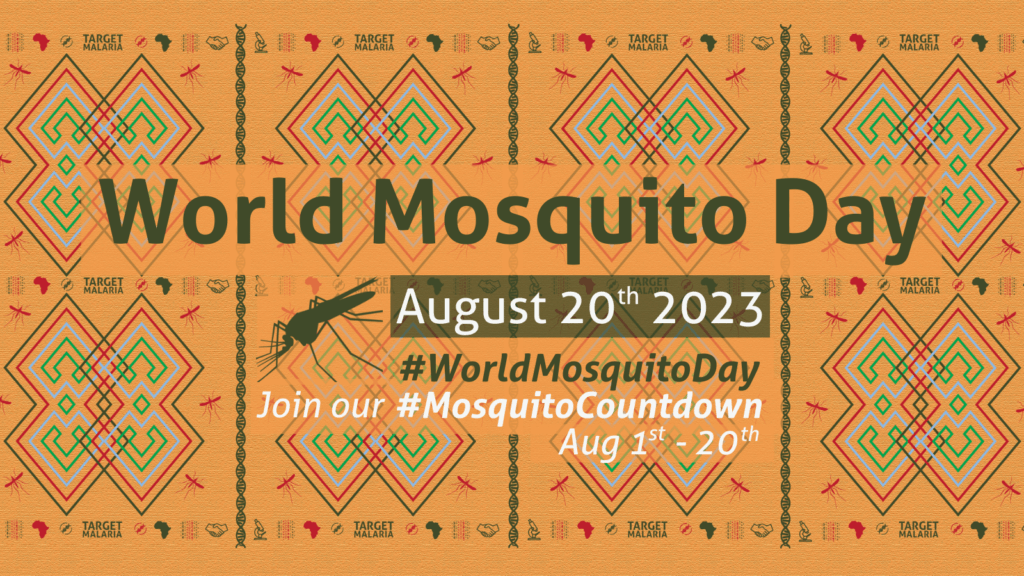
Blog – 04 August 2023
Why World Mosquito Day?
...no approved vaccine or specific treatment for chikungunya virus infections. Since 2004, outbreaks of CHIKV have become more frequent and widespread, caused partly due to viral adaptations allowing the virus...
Read more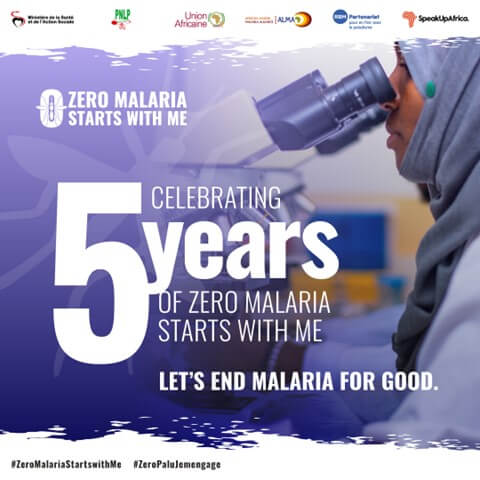
Blog – 07 July 2023
Celebrating five years of Zero Malaria Starts with Me
...action at all levels of society including among political, private sector and community leaders to accelerate malaria prevention and treatment and save lives. https://www.youtube.com/watch?v=fIGklXia7zI The RBM Partnership to End Malaria...
Read more
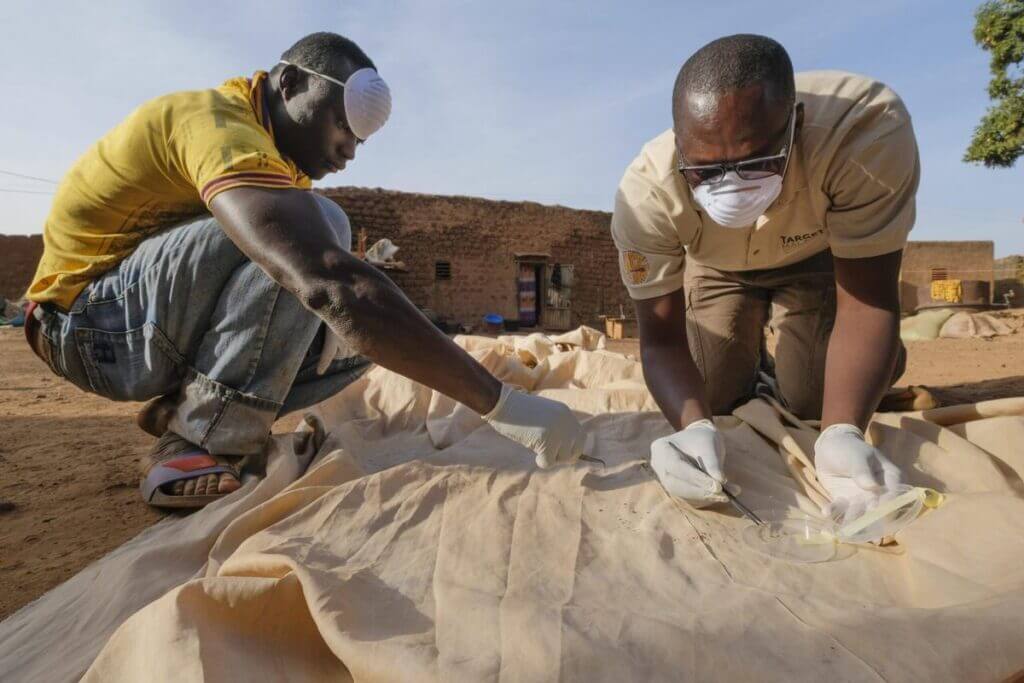
Media Coverage – 21 June 2023
Utilizan mosquitos modificados genéticamente para combatir la malaria
Read more

Page – 16 June 2023
Mozzie Drive Card Game
Mozzie Drive is an educational card game that demonstrates how gene drive technology could be used to reduce populations of malaria mosquitoes. This game was designed by Dr. Katie Willis...
Read more
Blog – 15 June 2023
My role as a malaria ambassador
...personal experiences and advocating for the Fund’s work. This culminated in speaking at the Global Fund replenishment conference in 2022. https://www.youtube.com/watch?v=-cXUzNgnXr4&ab_channel=TargetMalaria Speaking at the Global Fund Replenishment Conference Krystal with...
Read more
Page – 25 May 2023
Uganda Virtual Press Kit
...Dr. Charles Mugoya Target Malaria: Uganda Factsheet Download PDF Our project brochure . Download PDF Photos & Videos © All rights reserved - Target Malaria Contact Target Malaria Uganda Contact...
Read more
Page – 19 May 2023
Uganda
Target Malaria's team in Uganda works in collaboration with the Uganda Virus Research Institute (UVRI), based in Entebbe and is headed by Dr. Jonathan Kayondo. Context of our work Uganda...
Read more
Page – 19 May 2023
Ghana
Target Malaria’s team in Ghana works in collaboration with the University of Ghana, Legon, based in Accra and is headed by Dr. Fred Aboagye-Antwi. Context of our work Malaria is...
Read more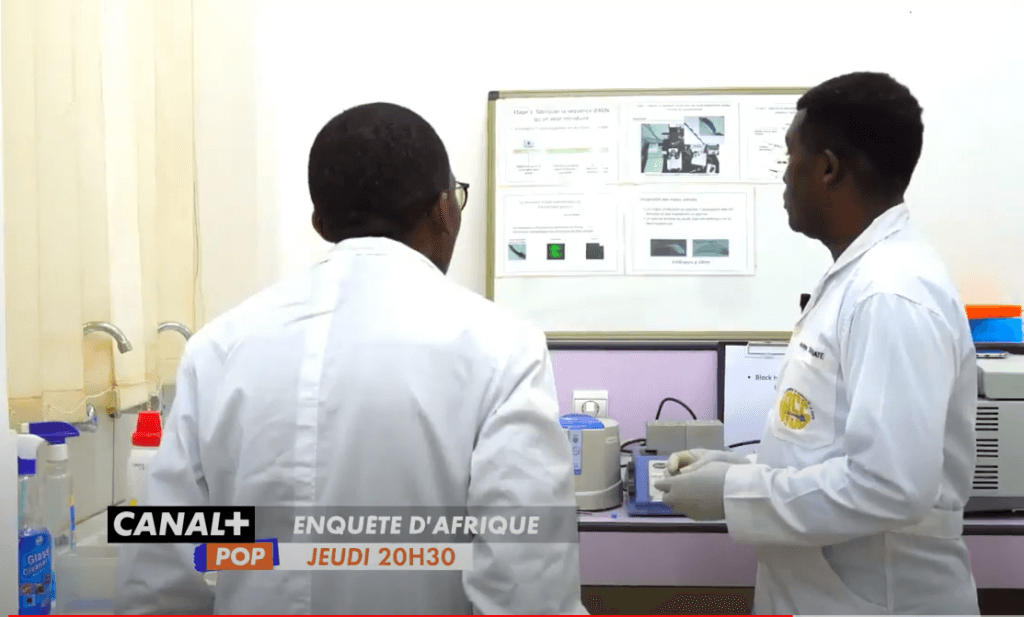
Media Coverage – 18 May 2023
Entretien Canal+ avec Professeur Abdoulaye Diabaté et Dr. Lea Pare Toe
Read more

Page – 16 May 2023
Burkina Faso
Target Malaria’s team in Burkina Faso works in collaboration with the Institut de Recherche en Sciences de la Santé (IRSS), based in Bobo-Dioulasso and is headed by Professor Abdoulaye Diabaté....
Read more
Media Coverage – 25 April 2023
‘The new rock n roll stars of our time’: Photographer Rankin swaps celebrities for scientists
Read more
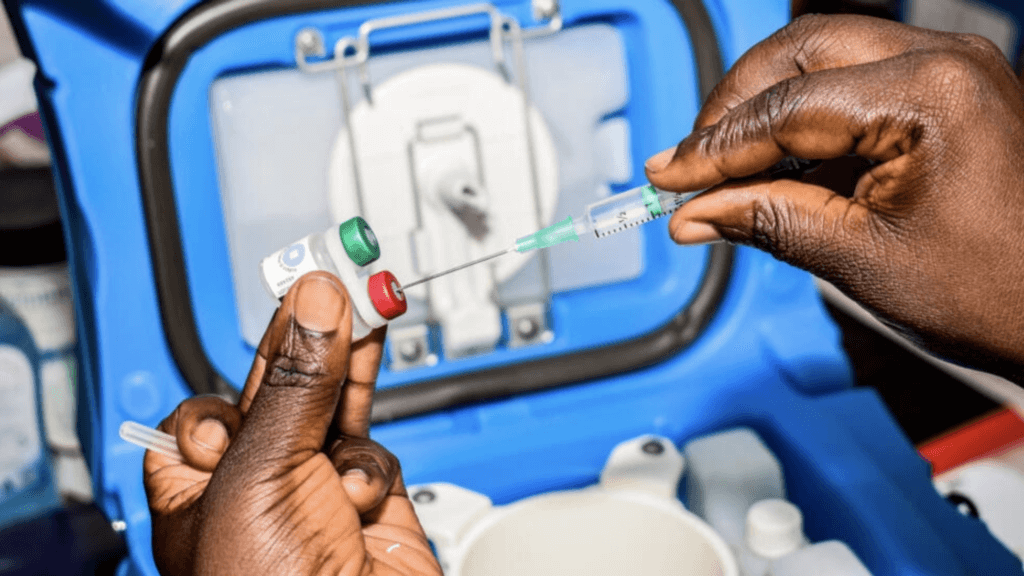
Media Coverage – 25 April 2023
Paludisme: les innovations face aux résistances du parasite
Read more

Media Coverage – 24 April 2023
A new malaria vaccine could be a ‘huge deal’ in the fight to save lives in Africa and abroad
Read more

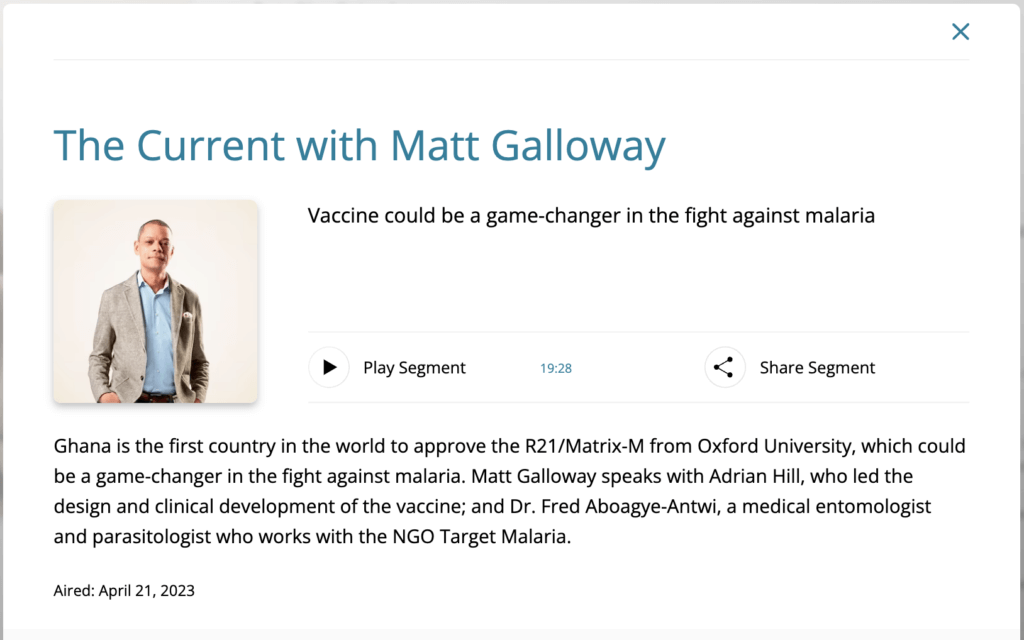
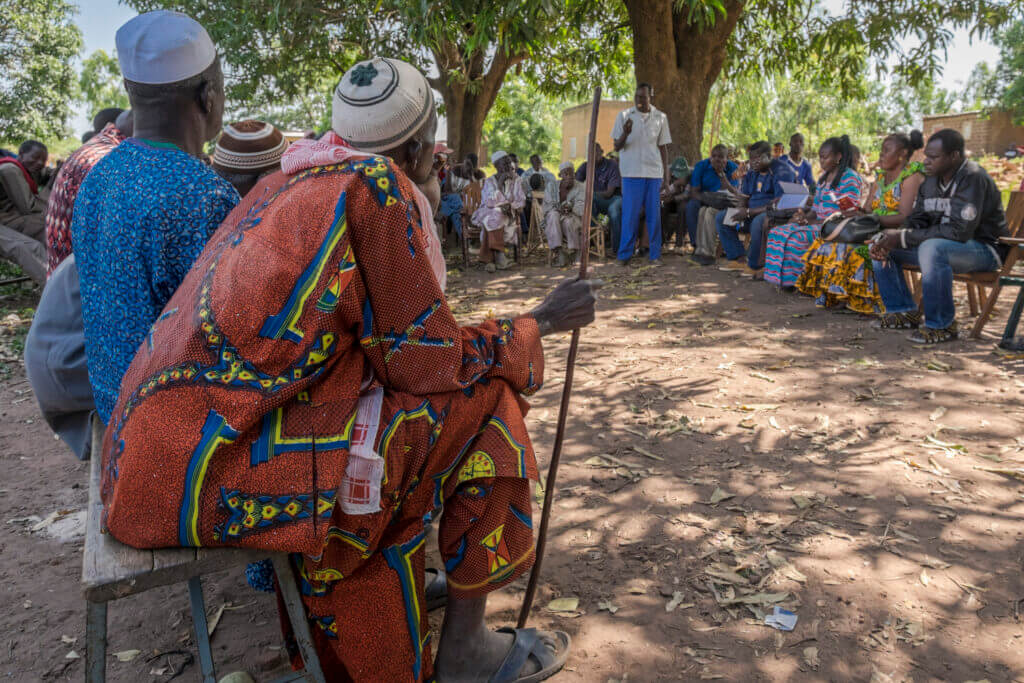
Blog – 24 March 2023
How do communities the project engages with make informed decisions about our work?
I’m pleased to share a new animation video which explains how communities the project engages with make informed decisions about our work. https://www.youtube.com/watch?v=N1ldtoJMZ3Y&t=22s Stakeholder engagement is at the core of...
Read more
Page – 17 March 2023
Community Engagement
In the villages and around our insectaries, we use culturally appropriate communication tools that are co-developed by the communities and the teams in local languages taking into consideration stakeholders’ preferences....
Read more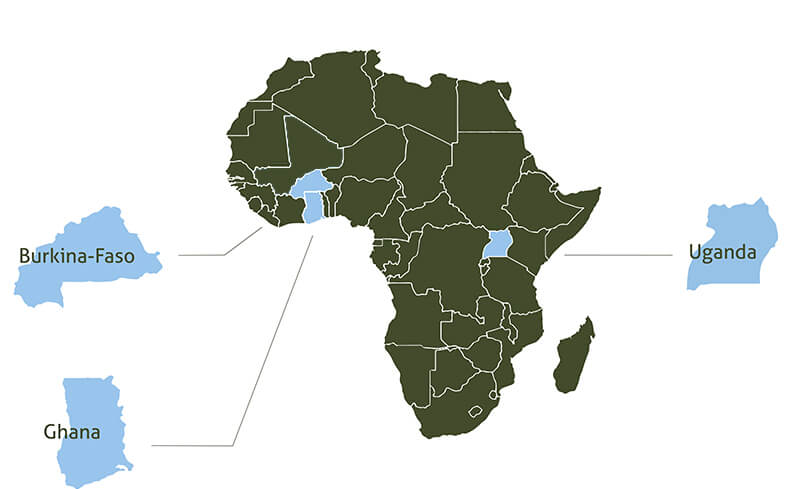
Blog – 17 March 2023
Reintroducing where we work
...laboratory was recently inaugurated at the University of Ghana to facilitate some of the planned research. The insectary will not be working with genetically modified mosquitoes. https://www.youtube.com/watch?v=oEwrtVADfxM&list=PL4j19OrfcF4zyaiGh7YeTM1u2iXChA8-T&index=2&ab_channel=iBOLConsortium The team in...
Read more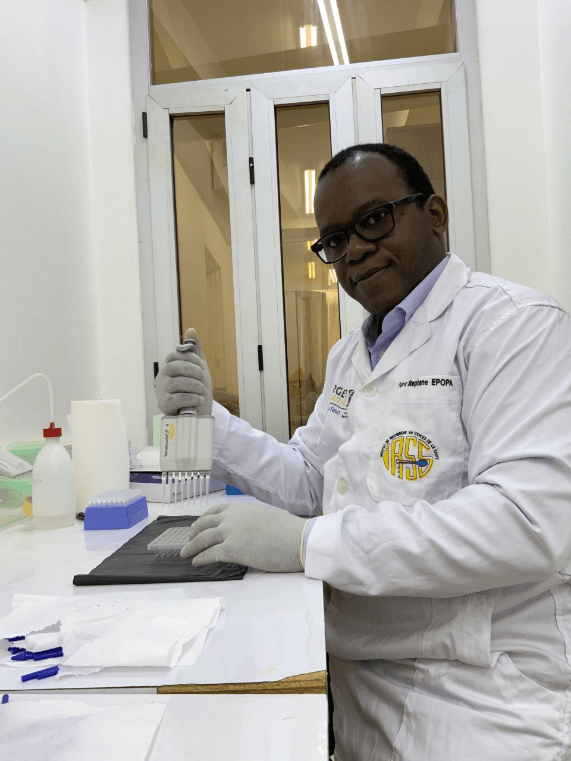
Spokeperson – 02 March 2023
Dr. Patric Epopa
Dr. Patric Stephane Epopa is the field entomology coordinator for Target Malaria Burkina Faso at the Research Institute in Health Sciences (Institut de Recherche en Science de la Santé (IRSS)...
Read more

Publication – 24 February 2023
Engagement on risk assessment for gene drive mosquitoes by EFSA and Target Malaria
Read more

Spokeperson – 24 February 2023
Dr. Martin Lukindu
Martin Lukindu is a post-doctoral research associate for Target Malaria in Uganda. Martin joined Target Malaria in 2013 as a field entomology coordinator, and left in 2015 for his doctoral...
Read more
Page – 07 February 2023
Photos & Videos
Photos © All rights reserved - Target Malaria Videos...
Read more
Spokeperson – 02 February 2023
Dr. Alexandre Quach
Alexandre Quach is Stakeholder Engagement Officer for Target Malaria, based at Imperial College, UK. Since 2022, Alex has been providing support to Stakeholder Engagement teams involved in the project, contributing to...
Read more
Spokeperson – 31 January 2023
Dr. Charles Guissou
Dr. Charles Guissou is a public health physician. He received his Medical Doctor degree in Medicine at the University of Ouagadougou in Burkina Faso in 2009 and a master’s degree...
Read more
Spokeperson – 31 January 2023
Dr. Talya D. Hackett
Dr. Talya D. Hackett, based at the Department of Biology at the University of Oxford, researches the potential ecological consequences of supressing Anopheles gambiae populations at Target Malaria. Talya’s work...
Read more
Spokeperson – 31 January 2023
Dr. Samantha O’Loughlin
Dr Samantha O’Loughlin is a population geneticist and stakeholder engagement support officer for Target Malaria at Imperial College London. In 2006, she took on a post-doctoral research position in a...
Read more
Spokeperson – 31 January 2023
Naima Sykes
Naima Sykes is a strategic communications and stakeholder engagement specialist working with an excellent global team to manage one of Target Malaria’s three pillars – Stakeholder Engagement. Her role is...
Read more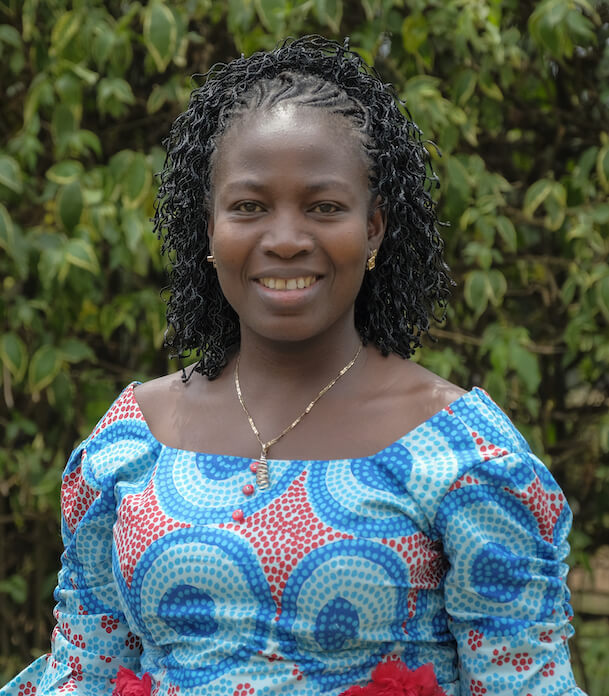
Spokeperson – 31 January 2023
Dr. Lea Pare Toe
Dr. Lea Pare Toe is the Stakeholder Engagement Lead for Target Malaria Burkina Faso, which is part of the Target Malaria consortium based at the Institut de Recherches en Sciences...
Read more
Spokeperson – 31 January 2023
Krystal Mwesiga Birungi
Krystal Mwesiga Birungi is the Field Entomology Coordinator for Target Malaria Uganda which is part of the Target Malaria consortium and based at the Uganda Virus Research Institute. For the...
Read more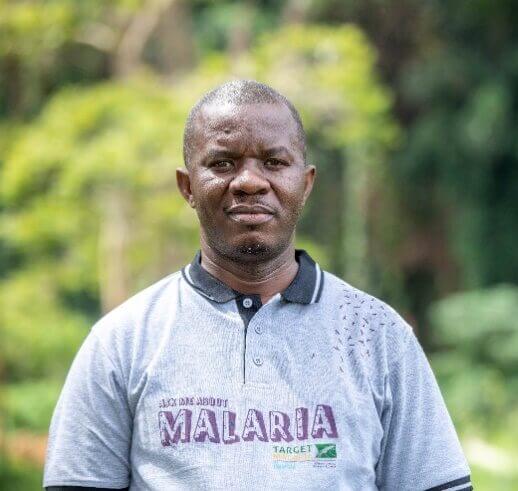
Spokeperson – 31 January 2023
Jude Thaddeus Bigirwenkya
Jude Thaddeus Bigirwenkya is a Stakeholder Engagement Manager for Target Malaria in Uganda. Joining in 2020, Jude has worked to expand the reach to different stakeholders from the community level...
Read more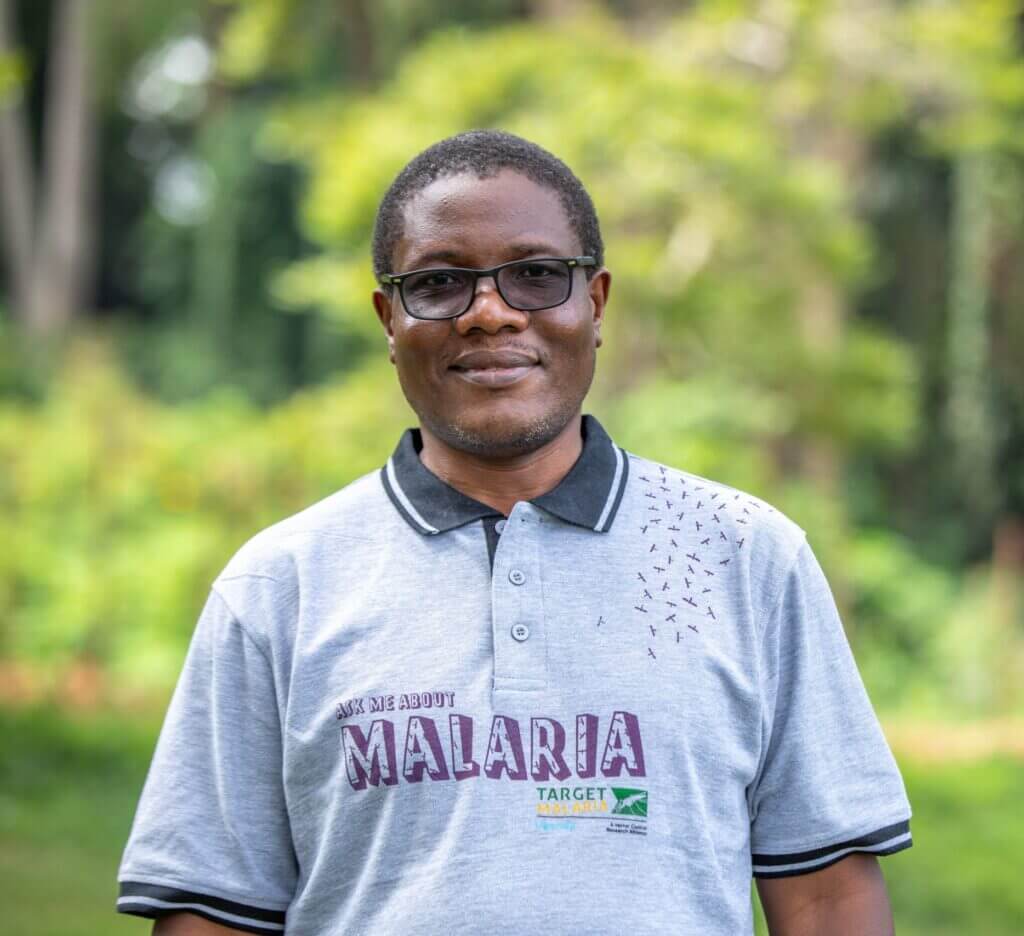
Spokeperson – 31 January 2023
Dr. Jonathan Kayondo
Dr. Jonathan Kayondo is Principal Investigator for Target Malaria in Uganda. He is also Senior Research Officer for the Department of Entomology, and the current acting Head of the Department...
Read more
Spokeperson – 31 January 2023
Dr. John B. Connolly
Dr. John B. Connolly is the Senior Regulatory Science Officer for Target Malaria. He joined Target Malaria at Imperial College London in 2017 and is the Senior Regulatory Science Officer...
Read more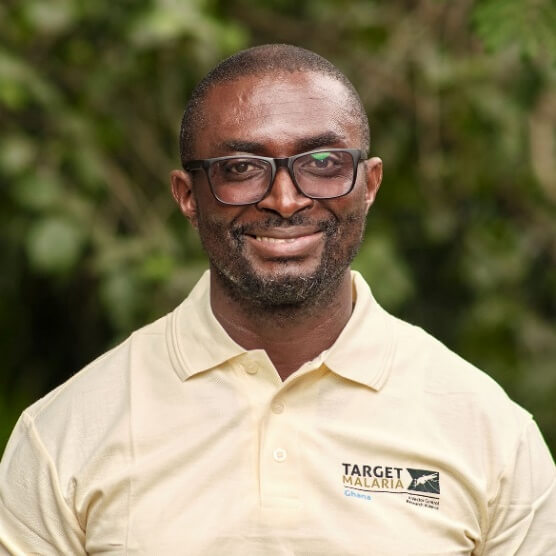
Spokeperson – 30 January 2023
Dr. Fred Aboagye-Antwi
Dr. Fred Aboagye-Antwi is Principal Investigator for Target Malaria in Ghana. He is also a Medical Entomologists at the Department of Animal Biology & Conservation Sciences and a Senior Lecturer...
Read more
Spokeperson – 30 January 2023
Dr. Federica Bernardini
Dr. Federica Bernardini is a Research Associate at Imperial College London, working on novel strategies to control the mosquito vector of human malaria. Since the start of their PhD studies...
Read more
Spokeperson – 30 January 2023
Dr. Charles Mugoya
Dr. Charles Mugoya is Regulatory Affairs Manager for Africa at Target Malaria. Dr. Mugoya is an entomologist by training. He started his working career with ICIPE as Resident Scientist in...
Read more
Spokeperson – 30 January 2023
Dr. Alekos Simoni
Dr. Alekos Simoni is a molecular biologist specialising in gene drive and mosquito research. He is currently serving as technical support specialist for Target Malaria UK at Imperial College London. ...
Read more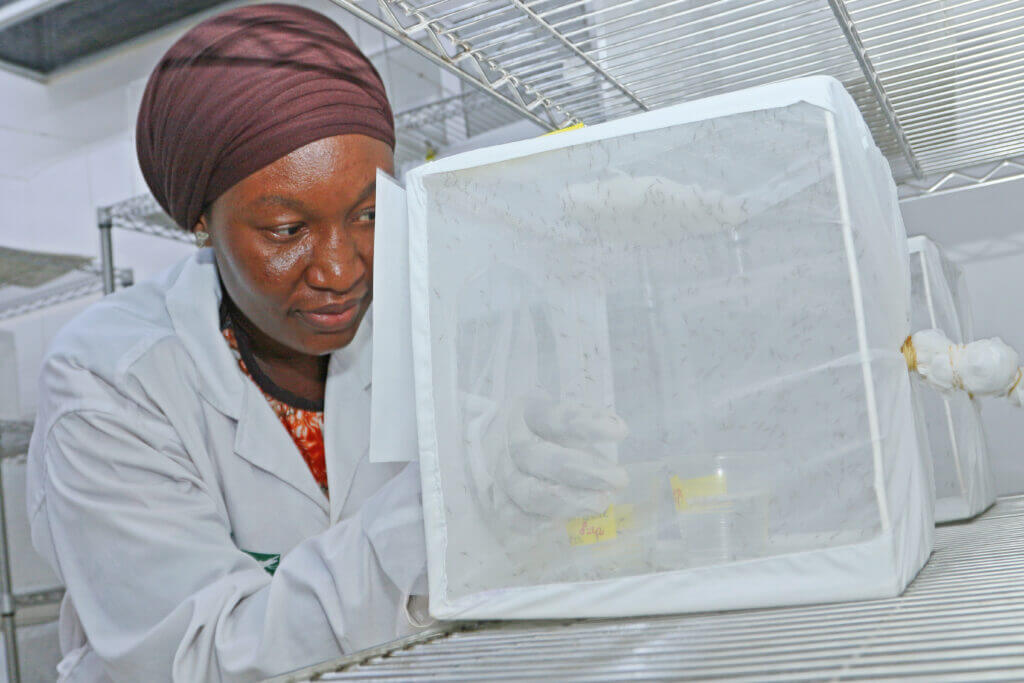
Blog – 27 January 2023
Reflections on 2022
...modified line.iii Target Malaria Burkina Faso team with the shipment of eggs You can watch the team receive the shipment below: https://www.youtube.com/watch?v=HsZpMRwEjxM&ab_channel=TargetMalaria Ghana continued their ecological observatory studies and completed...
Read more
Spokeperson – 27 January 2023
Prof. Abdoulaye Diabaté
...TED Talk was on “How to end malaria once and for all” and focused on the potential of gene drive technology to genetically modify mosquitoes and control malaria in Africa. https://www.ted.com/talks/abdoulaye_diabate_how_to_end_malaria_once_and_for_all?subtitle=en...
Read more
Page – 26 January 2023
Insectary activities
Insectary activities are at the heart of Target Malaria’s R&D program with a remit for creation, evaluation, maintenance and production for field evaluation of genetically modified mosquitoes for malaria control....
Read more
Page – 19 January 2023
Genetically Modified Male Bias
Non Gene Drive Following development of the non gene drive sterile male, the Target Malaria team developed a genetically modified Anopheles gambiae mosquito that could successfully mate and produce offspring,...
Read more
News – 18 January 2023
“Swarm” – a sonification of the 2016 cage trials by Imperial College London
...hatching sound at the beginning of each generation (every 7 days) RFP+ % (gene modification rate) Synth Harmonic (pitch rises as gene modification increases) instagram: jamie_perera twitter: @jamiepereramuso linkedin: https://www.linkedin.com/in/jamieperera/...
Read more
Publication – 13 January 2023
Effects of storage conditions and digestion time on DNA amplification of biting midge (Culicoides) blood meals
Ben Bellekom, Abigail Bailey, Marion England, Zoe Langlands, Owen T. Lewis, Talya D. Hackett. Effects of storage conditions and digestion time on DNA amplification of biting midge (Culicoides) blood meals....
Read more
Blog – 14 December 2022
African leaders prioritise health at the Global Fund replenishment
...many people now as they did 20 years ago according to Global Fund. Thanks to the Replenishment outcome, the Board approved ambitious investments totaling US$13.6 billion, including US$518 million for...
Read more
Page – 12 December 2022
Why Malaria Matters
Every year, malaria kills over 608 000 people and infects over 249 million people; a third of the world is at risk of contracting this disease transmitted by mosquitoes. The...
Read more
Publication – 24 November 2022
Analysis of the Genetic Variation of the Fruitless Gene within the Anopheles gambiae (Diptera: Culicidae) Complex Populations in Africa
Mahamadi Kientega, Nace Kranjc, Nouhoun Traoré, Honorine Kaboré, Dieudonné Diloma Soma, Ioanna Morianou, Moussa Namountougou, Adrien Marie Gaston Belem, Abdoulaye Diabate. Analysis of the Genetic Variation of the Fruitless Gene...
Read more
Blog – 16 November 2022
How Earth Observation Data is used by Target Malaria
...of geographical variables on the dynamics of vectors and diseases. At Target Malaria, we use various sources of earth observation data such as: Free online imagery resources: Google Earth; ESRI;...
Read more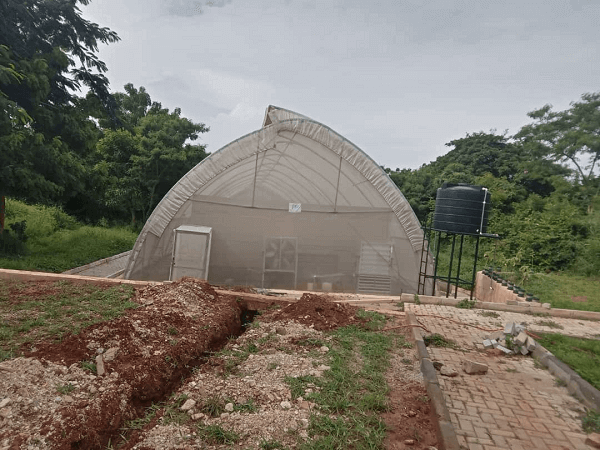
Media Coverage – 30 October 2022
Why African scientists are supporting gene drive research to fight malaria
Read more
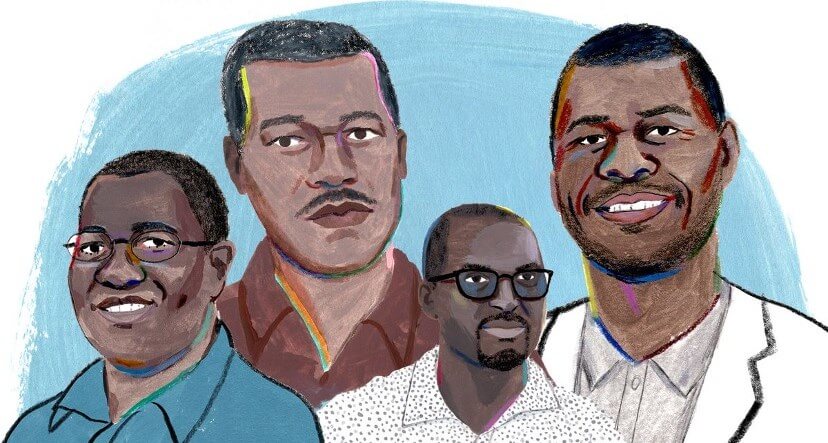
Media Coverage – 20 October 2022
Target Malaria’s scientists are working to rid Africa of an ancient plague
Read more
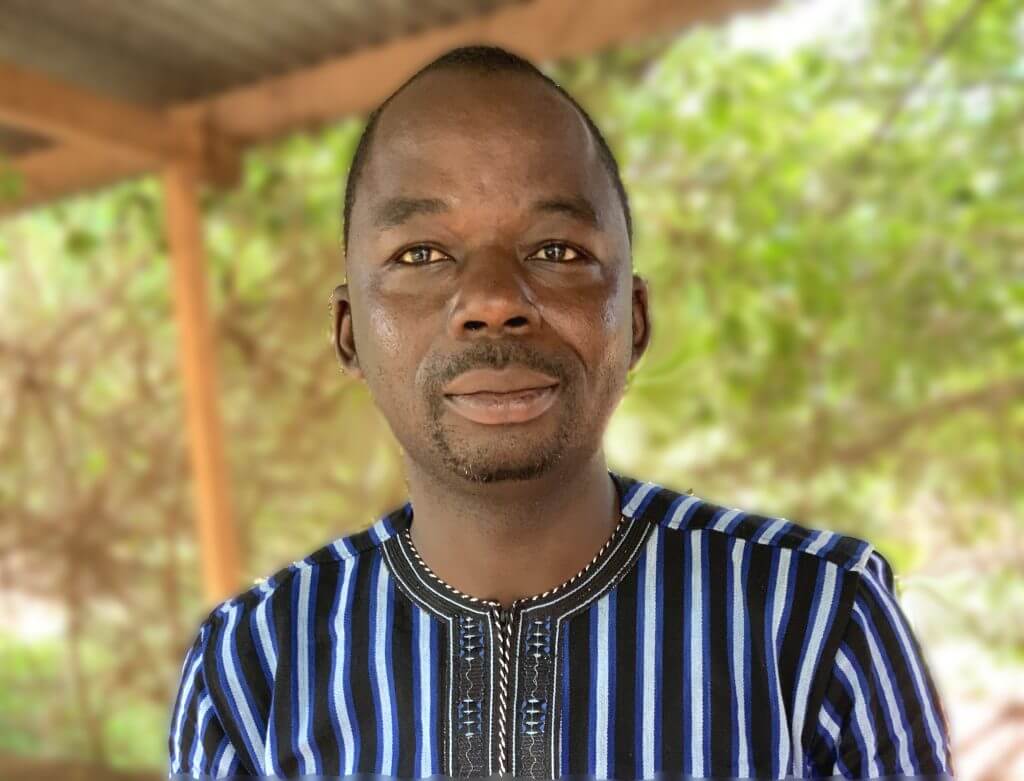
Publication – 16 October 2022
Driving down malaria transmission with engineered gene drives
Garrood WT, Cuber P, Willis K, Bernardini F, Page NM, Haghighat-Khah RE. Driving down malaria transmission with engineered gene drives. Front Genet. 2022 Oct 19;13:891218. doi: 10.3389/fgene.2022.891218
Read more
Publication – 16 October 2022
Introgression of a synthetic sex ratio distortion transgene into different genetic backgrounds of Anopheles coluzzii
Pollegioni P, Persampieri T, Minuz RL, Bucci A, Trusso A, Di Martino S, Leo C, Bruttini M, Ciolfi M, Waldvogel AM, Tripet F, Simoni A, Crisanti A, Müller R....
Read more
Publication – 16 October 2022
Points to consider in seeking biosafety approval for research, testing, and environmental release of experimental genetically modified biocontrol products during research and development
Tonui WK, Ahuja V, Beech CJ, Connolly JB, Dass B, Glandorf DCM, James S, Muchiri JN, Mugoya CF, Okoree EA, Quemada H, Romeis J. Points to consider in seeking biosafety...
Read more
Page – 03 October 2022
Home
Malaria fights hard. We fight harder. The Zero Malaria Experience shows how innovation and funding can save lives and end malaria. Discover more Episode 5: Can we outsmart disease? Target...
Read more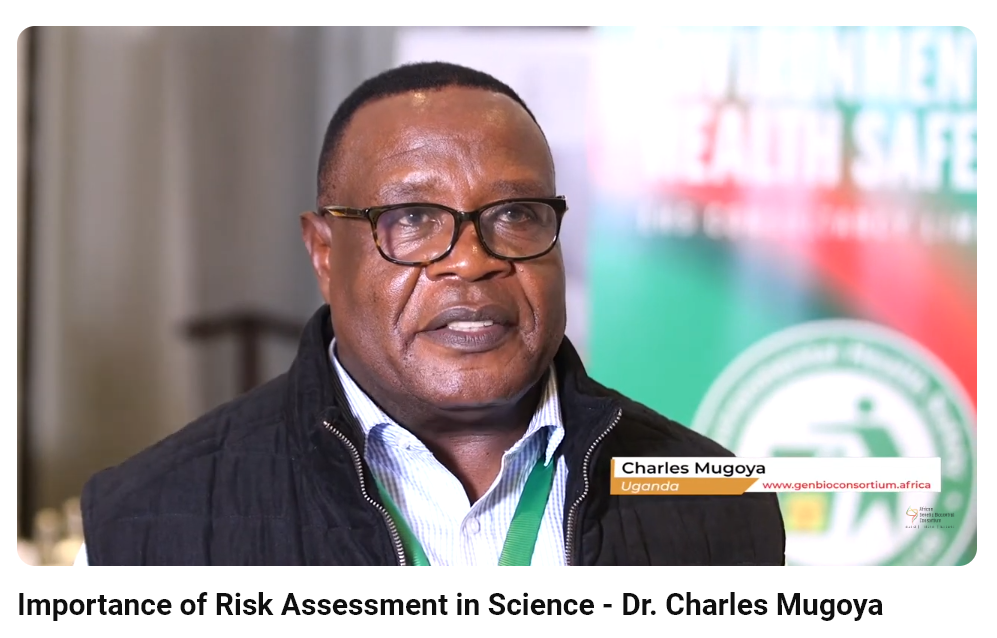

Publication – 16 September 2022
Transgenic Insects: Techniques and Applications (2nd Edition)
Read more

Publication – 23 August 2022
A theory of resistance to multiplexed gene drive demonstrates the significant role of weakly deleterious natural genetic variation
Khatri BS, Burt A. A theory of resistance to multiplexed gene drive demonstrates the significant role of weakly deleterious natural genetic variation. Proc Natl Acad Sci U S A. 2022...
Read more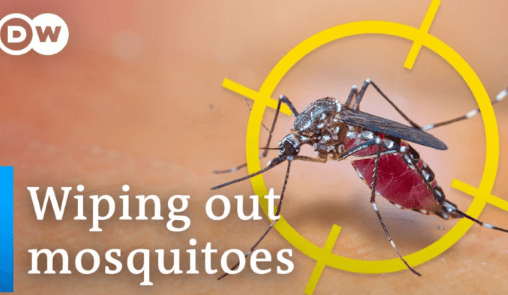

Publication – 01 July 2022
Gene drive in species complexes: defining target organisms
John B. Connolly, Jörg Romeis, Yann Devos, Debora C.M. Glandorf, Geoff Turner, Mamadou B. Coulibaly, Gene drive in species complexes: defining target organisms, Trends in Biotechnology, 2022, ISSN 0167-7799, https://doi.org/10.1016/j.tibtech.2022.06.013....
Read more
Publication – 01 July 2022
Comprehensive characterization of a transgene insertion in a highly repetitive, centromeric region of Anopheles mosquitoes
Matteo Vitale, Chiara Leo, Thomas Courty, Nace Kranjc, John B. Connolly, Giulia Morselli, Christopher Bamikole, Roya Elaine Haghighat-Khah, Federica Bernardini & Silke Fuchs (2022) Comprehensive characterization of a transgene insertion...
Read more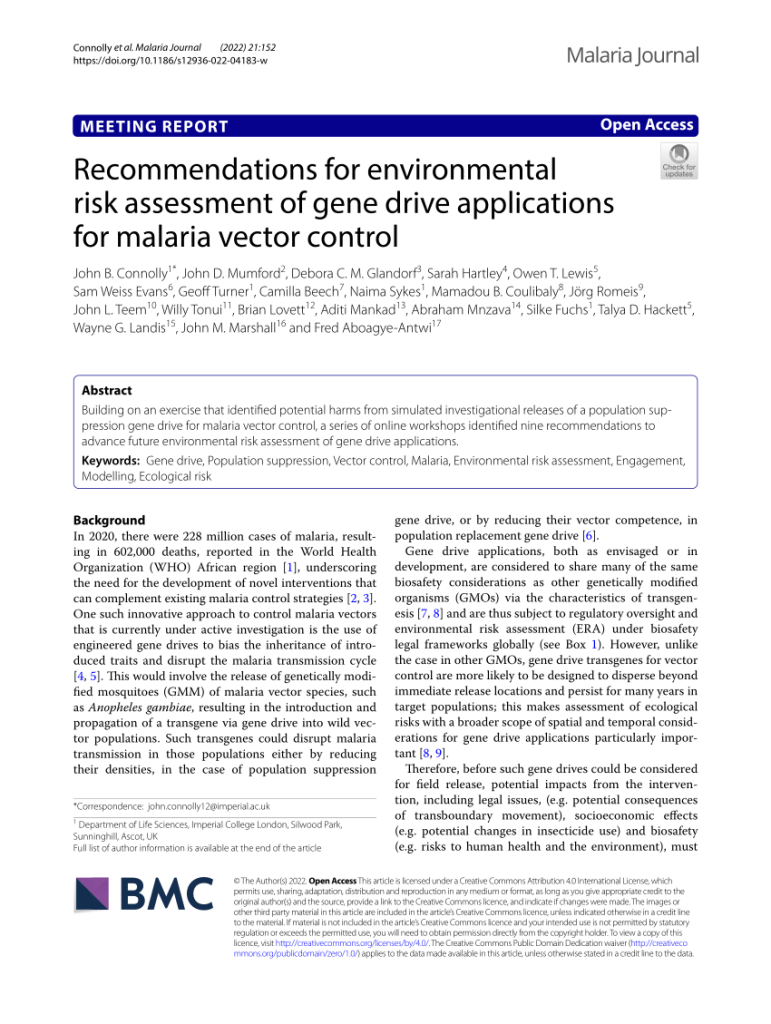
Blog – 15 June 2022
How to advance environmental risk assessment of gene drive for malaria when it’s never been done before
...Malaria experts and 11 external experts from multiple disciplines. The report’s nine recommendations are the result of six online workshops involving 50 experts from four continents who were invited to...
Read more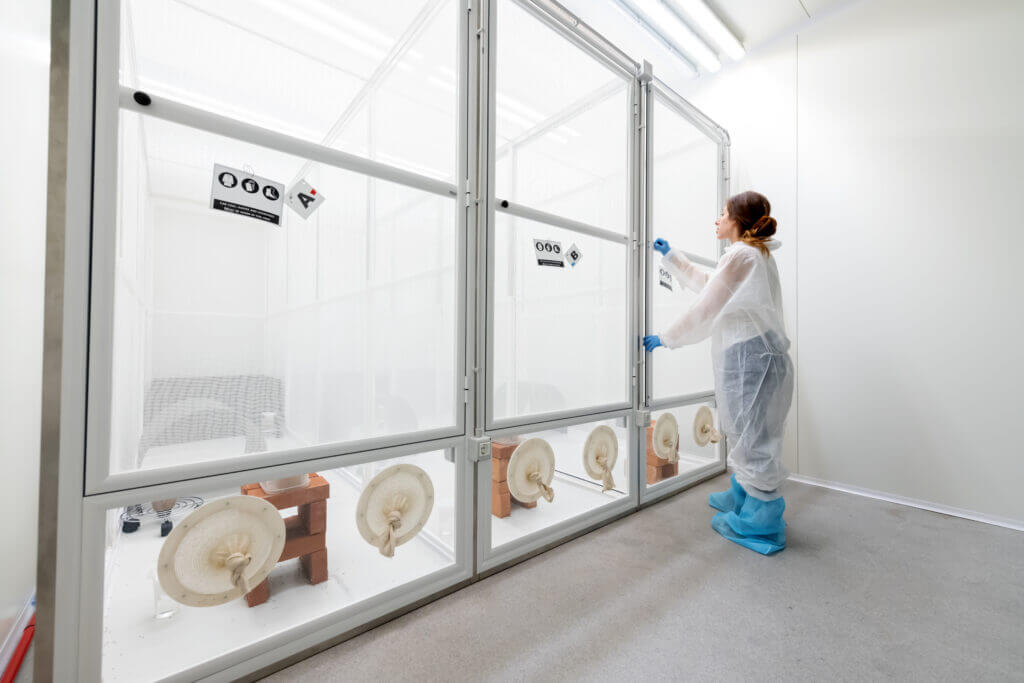
Media Coverage – 03 June 2022
Who decides whether to use gene drives against malaria-carrying mosquitoes?
Read more

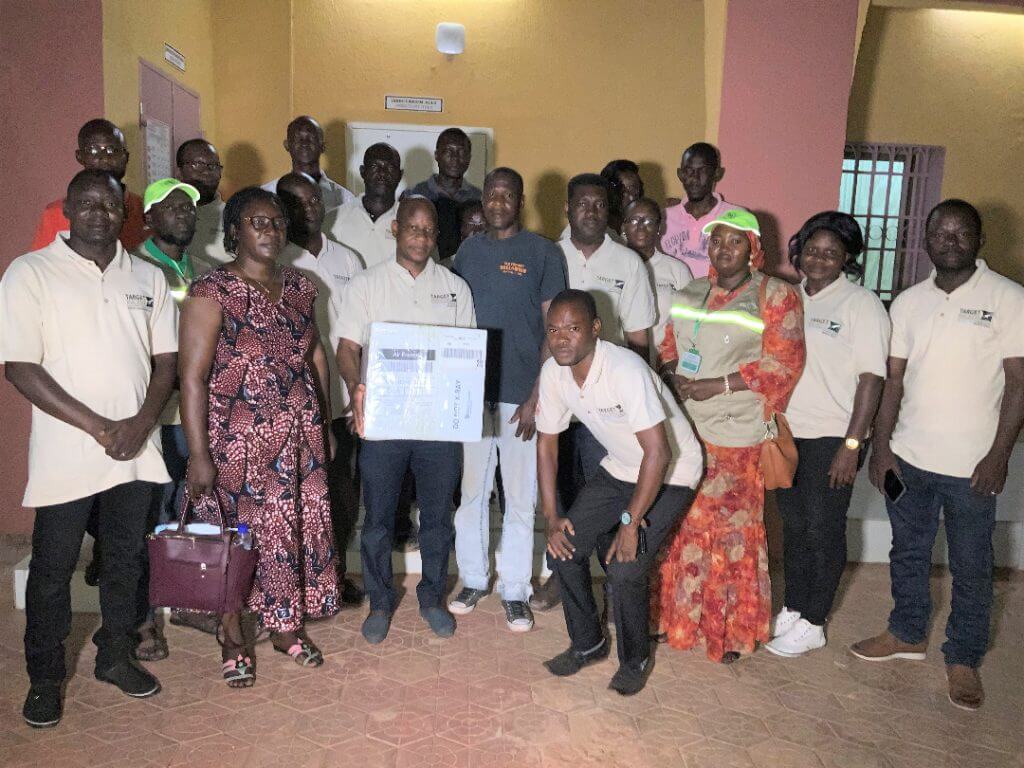
Blog – 11 May 2022
Importation of the non gene drive genetically modified male bias mosquito strain into Burkina Faso
...import and conduct contained use studies on the male bias strain. It follows the three years of successful work on the non gene drive genetically modified sterile male mosquitoes. https://www.youtube.com/watch?v=HsZpMRwEjxM&t=8s&ab_channel=TargetMalaria...
Read more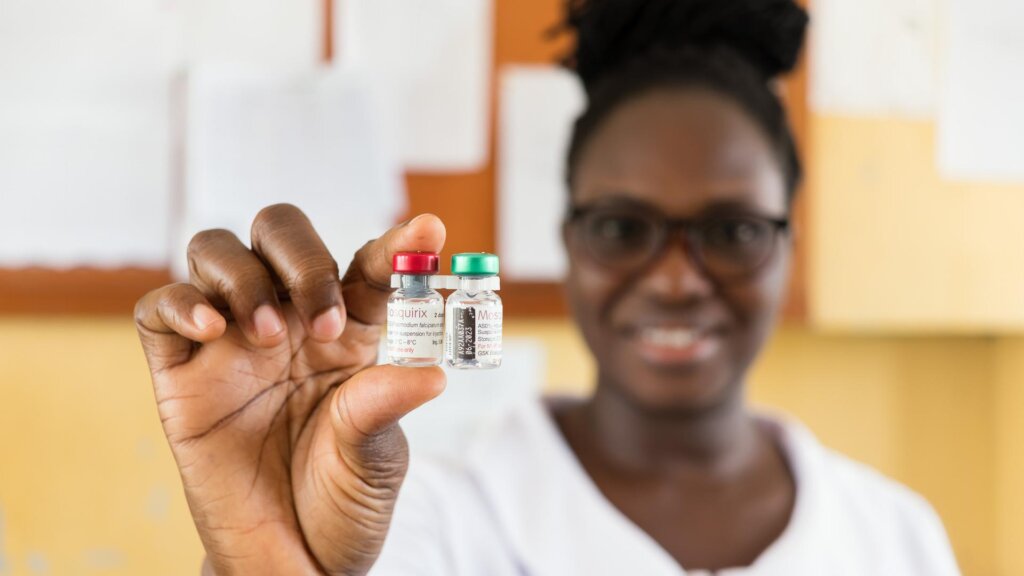
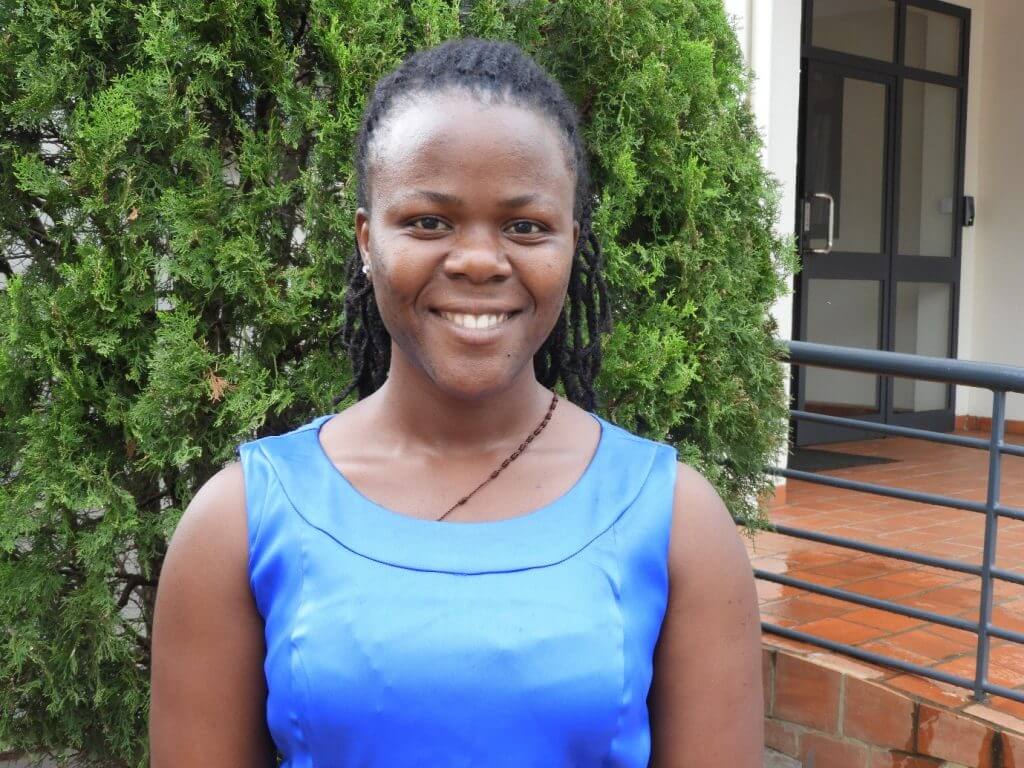
News – 12 April 2022
Fight for What Counts: The Global Fund’s Seventh Replenishment
...closer to ending malaria. Now is the moment to fight for what counts and protect everyone, everywhere from the deadliest infectious diseases and build a healthier, more equitable world. https://www.youtube.com/watch?v=2BBEgoxm8wY&feature=emb_logo...
Read more
Publication – 06 April 2022
A multi-disciplinary approach for a building common understanding of genetic engineering for malaria control in Burkina Faso
https://www.nature.com/articles/s41599-022-01122-7 A multi-disciplinary approach for a building common understanding of genetic engineering for malaria control in Burkina Faso...
Read more
Publication – 01 April 2022
Life-history attributes of juvenile Anopheles gambiae s.s. in central Uganda; implications for malaria control interventions
Batume, C., Akol, A.M., Mukwaya, L.G., Birungi, J. & Kayondo, J.K. (2022) Life-history attributes of juvenile Anopheles gambiae s.s. in central Uganda; implications for malaria control interventions. Medical and Veterinary...
Read more
Blog – 17 March 2022
Meet the people at Target Malaria helping #BreakTheBias this International Women’s Day
...innovation is essential to stay ahead of the malaria parasite and mosquito, and Target Malaria is proud to be contributing towards these efforts. https://www.youtube.com/watch?v=ECYI6jLYHAY We would like to warmly thank...
Read more
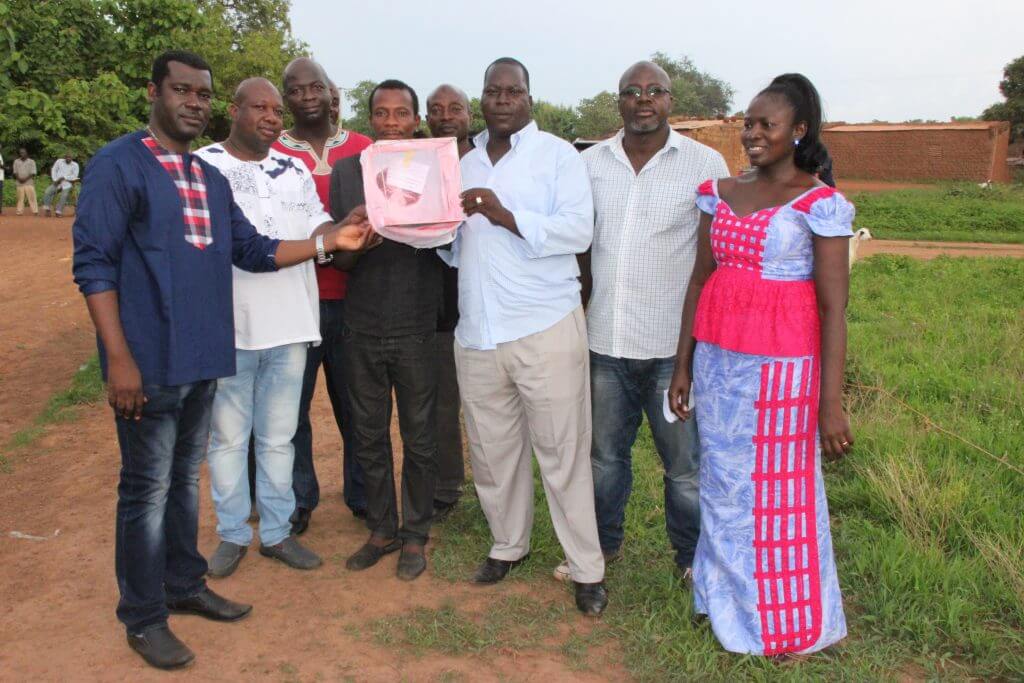
Blog – 10 February 2022
Entomological results from the first release of non gene drive genetically modified sterile male mosquitoes in Africa
...mosquito that is genetically modified to be sterile, so it can mate but cannot produce offspring. It does not carry the gene drive technology. https://www.youtube.com/watch?v=H7i9Anh0_Dg&ab_channel=TED-Ed The sterile male mosquitoes reared...
Read more
Publication – 10 February 2022
Mark-release-recapture experiment in Burkina Faso demonstrates reduced fitness and dispersal of genetically-modified sterile malaria mosquitoes
Mark-release-recapture experiment in Burkina Faso demonstrates reduced fitness and dispersal of genetically-modified sterile malaria mosquitoes
Read more

News – 25 January 2022
New office building for the Target Malaria Mali team
...and Pharmacy. Target Malaria has partnered with the MRTC since 2012, and this new office represents the strong links between the institution and Target Malaria team, helping to provide a...
Read more
Publication – 12 January 2022
Preparing an Insectary in Burkina Faso to Support Research in Genetic Technologies for Malaria Control
Preparing an Insectary in Burkina Faso to Support Research in Genetic Technologies for Malaria Control
Read more
Publication – 12 January 2022
Local adaptation and colonization are potential factors affecting sexual competitiveness and mating choice in Anopheles coluzzii populations
Local adaptation and colonization are potential factors affecting sexual competitiveness and mating choice in Anopheles coluzzii populations
Read more
Blog – 11 January 2022
Reflections on 2021
...and inbreeding at low density. (Preprint) https://www.biorxiv.org/content/10.1101/2021.11.11.468225v2. [9] Bhavin S. Khatri BS, Burt A. Weakly deleterious natural genetic variation amplifies probability of resistance in multiplexed gene drive systems (Pre-print) https://www.biorxiv.org/content/10.1101/2021.12.23.473701v2....
Read more

Publication – 04 December 2021
The Potential for a Released Autosomal X-Shredder Becoming a Driving-Y Chromosome and Invasively Suppressing Wild Populations of Malaria Mosquitoes
Alcalay Y, Fuchs S, Galizi R, Bernardini F, Haghighat-Khah RE, Rusch DB, Adrion JR, Hahn MW, Tortosa P, Rotenberry R, Papathanos PA. The Potential for a Released Autosomal X-Shredder Becoming...
Read more
Blog – 02 December 2021
Arthropod Containment Guidelines updated with addendum on gene drive
...and safety, to animal and plant health, or to animal or plant products. 7CFR Part 331, 9 CFR Part 121, and 42 CFR Part 73 For more information visit: https://www.cdc.gov/cpr/dsat/what-is-select-agents.htm...
Read more
Blog – 12 October 2021
WHO recommends malaria vaccine for broad-scale use in Africa
...specific and diverse needs of different communities and geographies at risk of malaria. https://www.youtube.com/watch?v=PfJnB2hPCWk&t=395s Dr Andrew Hammond, Imperial College London, discusses vaccines and the use of gene drive technology for...
Read more
Publication – 04 September 2021
A systematic review assessing the potential for release of vector species from competition following insecticide-based population suppression of Anopheles species in Africa
Qureshi A, Connolly JB. A systematic review assessing the potential for release of vector species from competition following insecticide-based population suppression of Anopheles species in Africa. Parasit Vectors. 2021 Sep...
Read more
News – 20 August 2021
World Mosquito Day: Understanding the malaria vector
...safe and approved. A reduction in female Anopheles mosquito numbers will lead to a reduction in malaria transmission. Malaria is an infectious disease with a huge impact on the economic...
Read more
Media Coverage – 28 July 2021
Malarial mosquitoes suppressed in experiments that mimic natural environments
Read more
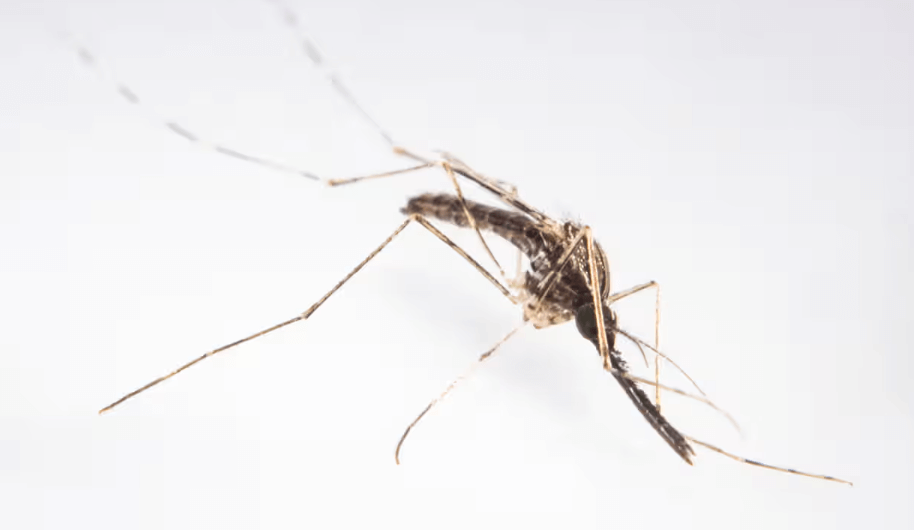
Media Coverage – 28 July 2021
Genetic engineering test with mosquitoes ‘may be game changer’ in eliminating malaria
Read more
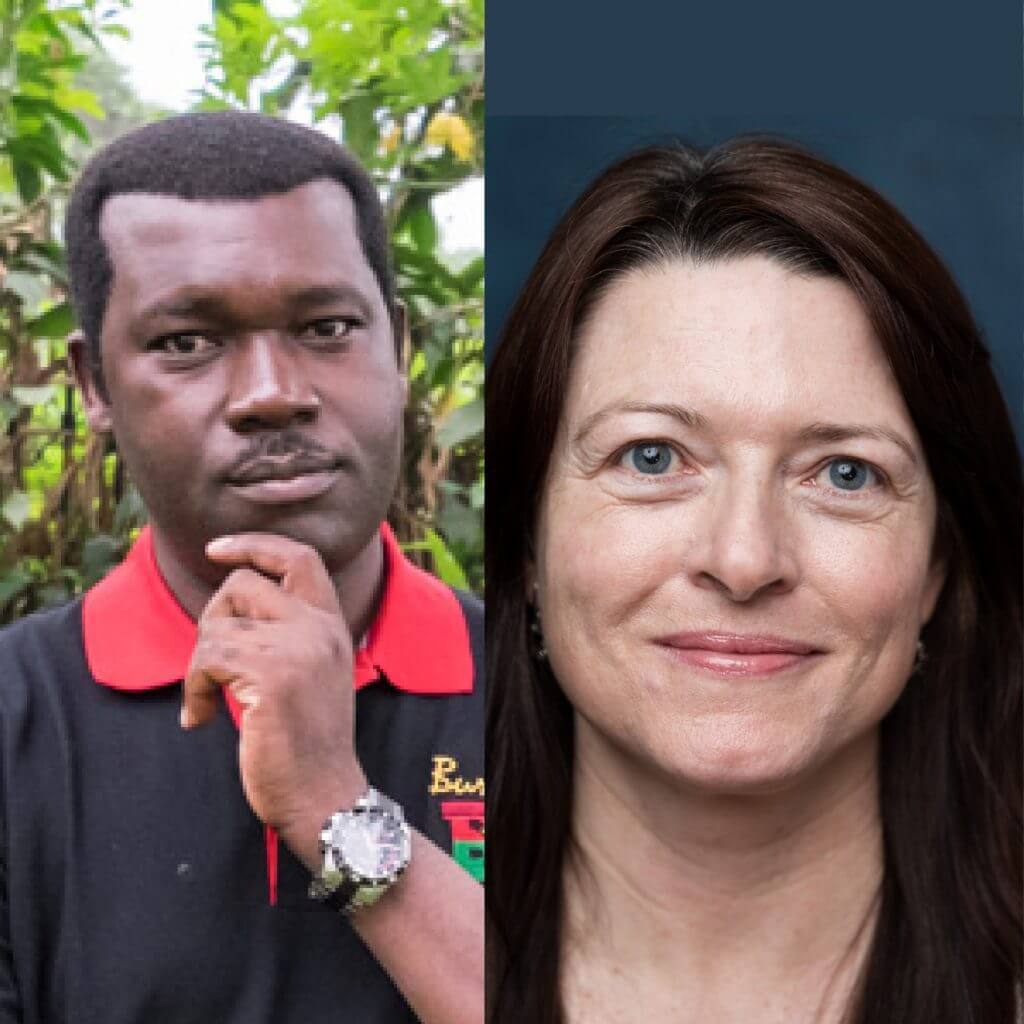
News – 15 July 2021
Convention on Biological Diversity talks go virtual
Throughout most of May and June we followed an online meeting that will have important consequences for the natural world, yet is largely overlooked by the general public and even...
Read more
Publication – 04 July 2021
Gene-drive suppression of mosquito populations in large cages as a bridge between lab and field
Hammond A, Pollegioni P, Persampieri T, North A, Minuz R, Trusso A, Bucci A, Kyrou K, Morianou I, Simoni A, Nolan T, Müller R, Crisanti A. Gene-drive suppression of mosquito...
Read more
Publication – 02 July 2021
Global Malaria Burden Map by Medicines for Malaria Venture (MMV) and the WHO Global Malaria Programme
https://www.severemalaria.org/severe-malaria/global-malaria-burden-map
Read more
Blog – 30 June 2021
Talking public health, biodiversity and development at the European Development Days
The European Development Days (EDD), Europe’s leading forum for international cooperation and development, took place from June 15-16, 2021. The virtual event was equipped with an online platform designed to...
Read more
News – 16 June 2021
WHO releases updated Guidance framework for testing of genetically modified mosquitoes
...gene drive genetically modified mosquitoes (GMM) have been approved and released in specific field applications (some at commercial scale) in South America, North America and Africa; next generation improvements in...
Read more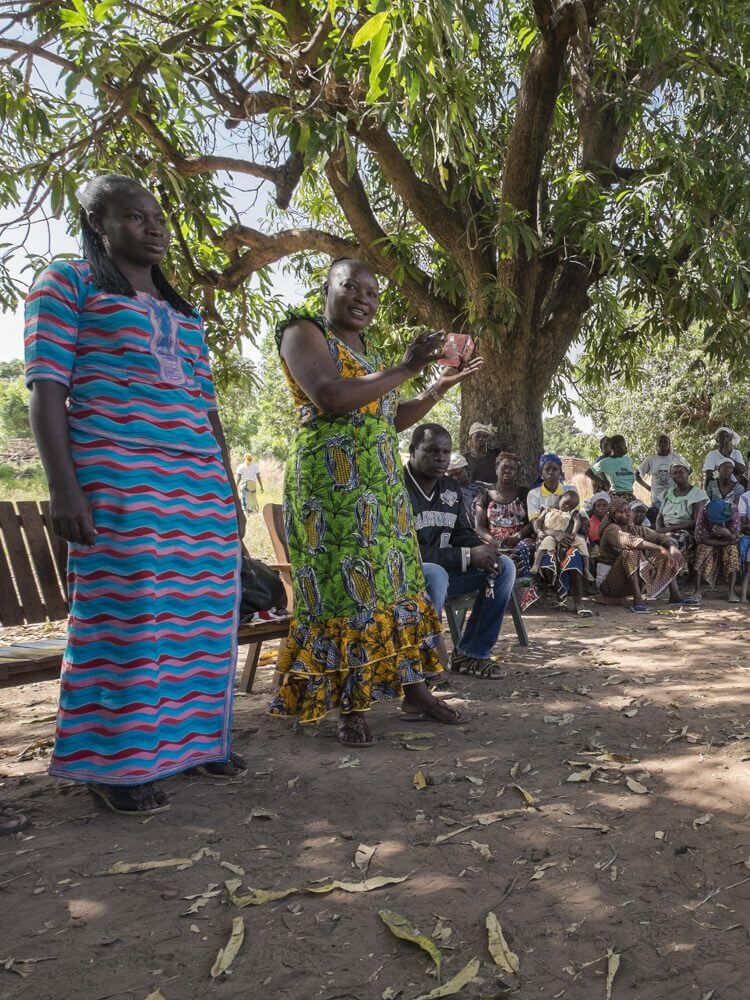
Blog – 09 June 2021
Laying the groundwork for a community agreement framework for gene drive research in Africa
...of gene drive mosquitoes would have to be approved by the community as a group before it could be allowed to take place. While there is ample guidance in...
Read more
Publication – 02 June 2021
A genetically encoded anti-CRISPR protein constrains gene drive spread and prevents population suppression
Chrysanthi Taxiarchi ...
Read more
Media Coverage – 20 May 2021
Burkina Faso Testing Genetically Modified Mosquitoes to Curb Malaria
Read more

Publication – 19 May 2021
WHO issues new guidance for research on genetically modified mosquitoes to fight malaria and other vector-borne diseases
WHO issues new guidance for research on genetically modified mosquitoes to fight malaria and other vector-borne diseases
Read more
Blog – 19 May 2021
Disparities in malaria risk and resilience amongst rural populations in western Burkina Faso
...Lassane Yameogo, of the Université Joseph KI- Zerbo in Ouagadougou, Burkina Faso. The aim of my research project was to analyse the resilience of rural populations in western Burkina Faso...
Read more
Publication – 04 May 2021
Genetic Technologies for Sustainable Management of Insect Pests and Disease Vectors
Silvia Grilli, Roberto Galizi and Chrysanthi Taxiarchi. G Genetic Technologies for Sustainable Management of Insect Pests and Disease Vectors. Sustainability 2021, 13(10), 5653...
Read more
Publication – 04 May 2021
Contemporary Ne estimation using temporally spaced data with linked loci
Hui TJ, Brenas JH, Burt A. Contemporary Ne estimation using temporally spaced data with linked loci. Mol Ecol Resour. 2021 Oct;21(7):2221-2230.
Read more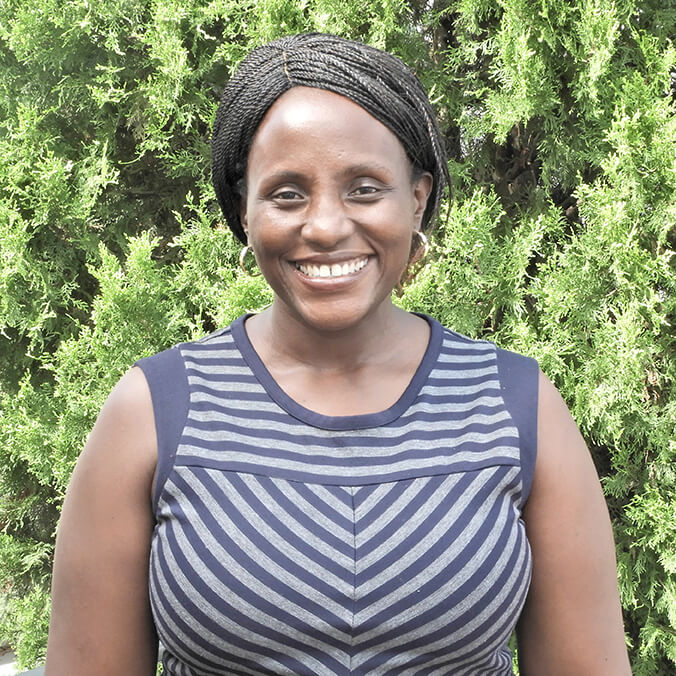
News – 25 April 2021
Target Malaria’s Young Scientists Draw the Line Against Malaria on World Malaria Day
...campaign’s short film where she plays a school teacher. She tells us more about it in this blog’s post. https://www.youtube.com/watch?v=o3Elc08Zo4o&ab_channel=TargetMalaria Every two minutes, a child dies from malaria. This is...
Read more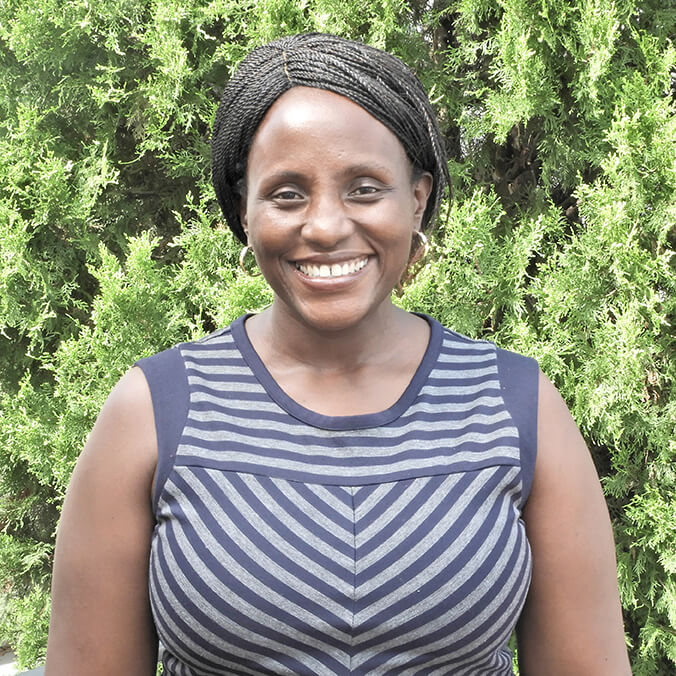
Publication – 01 April 2021
Analysis of off-target effects in CRISPR-based gene drives in the human malaria mosquito
Garrood WT, Kranjc N, Petri K, Kim DY, Guo JA, Hammond AM, Morianou I, Pattanayak V, Joung JK, Crisanti A, Simoni A. Analysis of off-target effects in CRISPR-based gene drives...
Read more
Media Coverage – 05 March 2021
In Uganda, genetically modified mosquitoes bring hope and fear
Read more

Publication – 01 March 2021
Proceedings of an expert workshop on community agreement for gene drive research in Africa – Co-organised by KEMRI, PAMCA and Target Malaria
...workshop on community agreement for gene drive research in Africa – Co-organised by KEMRI, PAMCA and Target Malaria [version 2; peer review: 2 approved]. Gates Open Res 2021, 5:19 (https://doi.org/10.12688/gatesopenres.13221.2)...
Read more
News – 01 March 2021
New parasitologist
...not in the labs, you can find me rafting or hiking with my husband and three dogs – a husky mix, and two Great Danes. Follow me on LinkedIn: https://www.linkedin.com/in/kerioxendineharp/...
Read more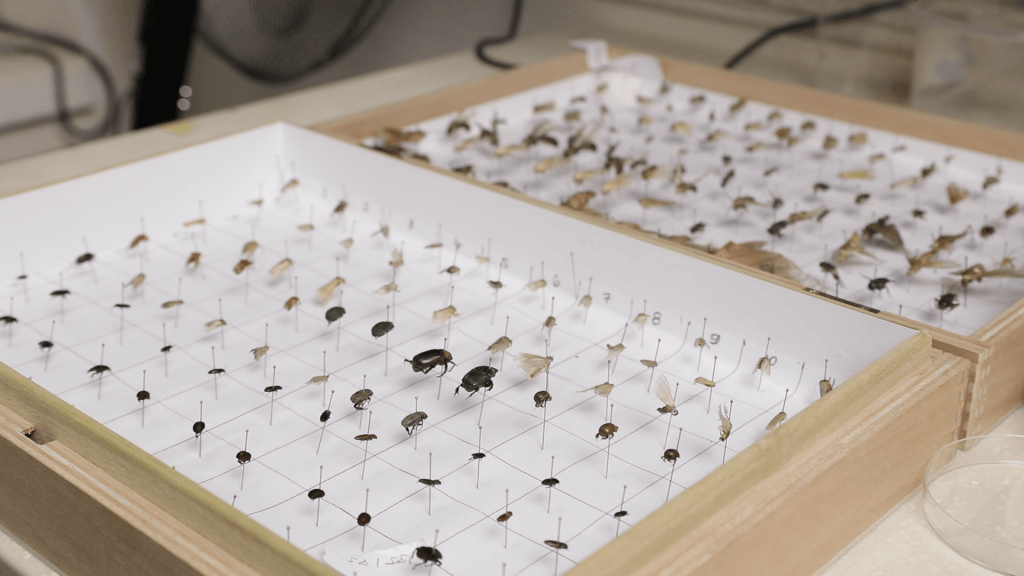
Blog – 10 February 2021
Using DNA barcodes in the fight against malaria
...https://www.youtube.com/watch?v=oEwrtVADfxM With this objective in mind, researchers at the University of Ghana have been collecting data on the ground that will eventually lead to the creation of an “ecological network”,...
Read more
Blog – 03 February 2021
Making Target Malaria’s science accessible to kids
...messages, emphasising the need to remove standing water, use bednets, have window screens, and apply approved insecticides and repellents. Personally, it is rewarding to think that Tilly, Ellen and myself...
Read more
Publication – 22 December 2020
We need to redefine the relationship between science and its end-users
We need to redefine the relationship between science and its end-users by Léa Parre-Toe...
Read more
Publication – 11 December 2020
WHO World malaria report 2020
WHO World malaria report 2020
Read more
Spokeperson – 24 November 2020
Dr. Mamadou Coulibaly
...Target Malaria Mali. With an early interest and a keen intellectual curiosity for science, Dr. Mamadou Coulibaly obtained his doctorate degree in Pharmacy in 1999 in his home country of...
Read more
Multimedia – 05 November 2020
Brave New Planet: Episode 6: Reshaping Nature Through Gene Drives
Read more

Media Coverage – 28 October 2020
Interview with Professor Austin Burt: Role of gene drive technology in the context of the EU’s Biodiversity Strategy 2030
Read more

Blog – 22 October 2020
Why eradicating Malaria in Africa requires a specific approach and new tools?
...et al. (2020) Potential impact of the COVID-19 pandemic on HIV, tuberculosis, and malaria in low-income and middle-income countries: a modelling study. Lancet Glob Health; published online July 13. https://doi.org/10.1016/S2214-109X(20)30317-X...
Read more
Blog – 15 October 2020
Investment in new vector control tools recommended if we are to avoid malaria resurgence, new study indicates
...C, Jensen HT (2020) Will More of the Same Achieve Malaria Elimination? Results from an Integrated Macroeconomic Epidemiological Demographic Model. Am J Trop Med Hyg.; published online September 21. https://doi.org/10.4269/ajtmh.19-0472...
Read more
Publication – 15 October 2020
Cellular mechanisms regulating synthetic sex ratio distortion in the Anopheles gambiae germline
Haghighat-Khah RE, Sharma A, Wunderlich MR, Morselli G, Marston LA, Bamikole C, Hall A, Kranjc N, Taxiarchi C, Sharakhov I, Galizi R. Cellular mechanisms regulating synthetic sex ratio distortion in...
Read more
Publication – 03 September 2020
European Academies’ Science Advisory Council report on Genome Editing
European Academies’ Science Advisory Council report on Genome Editing ...
Read more
Publication – 03 September 2020
The OECD Working Party on Biotechnology, Nanotechnology and Converging Technologies (BNCT) published a report entitled “Gene editing in an international context: Scientific, economic and social issues across sectors”
The OECD Working Party on Biotechnology, Nanotechnology and Converging Technologies (BNCT) published a report entitled “Gene editing in an international context: Scientific, economic and social issues across sectors” ...
Read more
Publication – 03 September 2020
International experts report on the “Pathway to Deployment of Gene Drive Mosquitoes as a Potential Biocontrol Tool for Elimination of Malaria in Sub-Saharan Africa: Recommendations of a Scientific Working Group”
...
Read more
Blog – 25 August 2020
Understanding the population dynamics of a self-limiting male bias strain in malaria mosquitoes
...is making important scientific advances in the development of self-limiting strategies for vector control for malaria. More details about these experiments are available in the Journal of Applied Ecology. https://besjournals.onlinelibrary.wiley.com/doi/full/10.1111/1365-2664.13702?af=R...
Read morePublication – 20 August 2020
Modelling the suppression of a malaria vector using a CRISPR-Cas9 gene drive to reduce female fertility
North A, Burt A, Godfray HCJ. Modelling the suppression of a malaria vector using a CRISPR-Cas9 gene-drive to reduce female fertility. BMC Biol. 2020 Aug 11;18(1):98. doi: 10.1186/s12915-020-00834-z.
Read more
Blog – 20 August 2020
Virtual tours of Target Malaria’s insectaries to celebrate World Mosquito Day
...process for import and release in Africa. Institut de Recherche en Science de la Santé (Burkina Faso) and the Malaria Research and Training Center (Mali) https://www.youtube.com/watch?v=-GNqWOq024Q The teams in Burkina...
Read more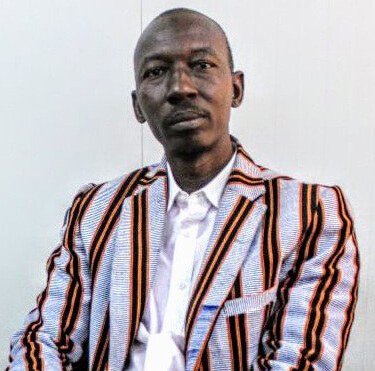
Blog – 11 August 2020
Malaria, tuberculosis, and HIV : how can the impact of COVID-19 be minimised
...al. (2020) Potential impact of the COVID-19 pandemic on HIV, tuberculosis, and malaria in low-income and middle-income countries: a modelling study. Lancet Glob Health; published online July 13. https://doi.org/10.1016/S2214-109X(20)30317-X [2]...
Read moreBlog – 24 July 2020
Bridging the investment gap in the fight against malaria
...external funding for malaria initiatives accounting for 65% of all international financing for malaria, and has invested more than US$12.5 billion in malaria control programs as at December 2019, https://www.theglobalfund.org/en/malaria/...
Read more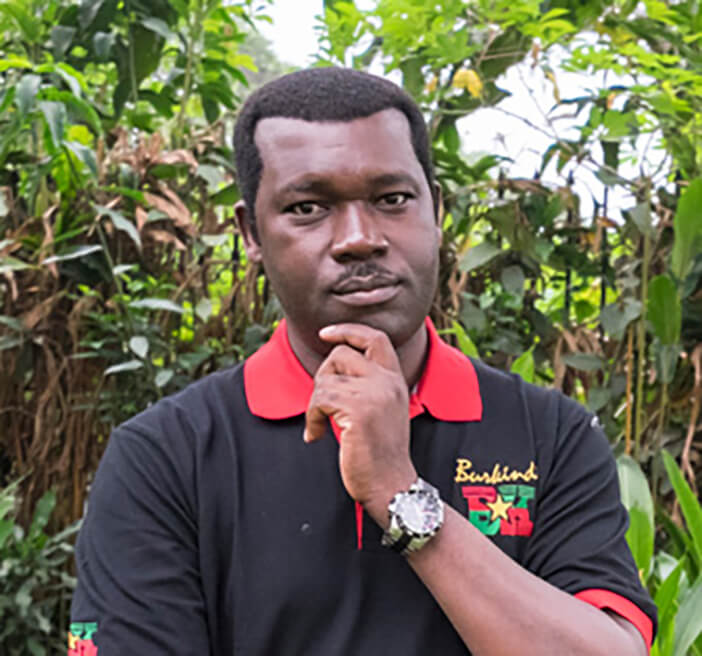
Publication – 20 July 2020
Providing a policy framework for responsible gene drive research: an analysis of the existing governance landscape and priority areas for further research
...framework for responsible gene drive research: an analysis of the existing governance landscape and priority areas for further research. Wellcome Open Res. 2020; 5: 173. Published online 2020 Jul 20....
Read moreBlog – 29 June 2020
Crisanti lab on lockdown
...online working platforms. Egg shipment mission In order to pursue some important experiments with collaborators in Italy, the team was involved in the shipment of four mosquito strains. Each group...
Read more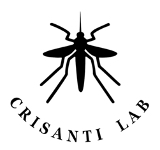
Page – 26 June 2020
How gene drive works
Currently, we are evaluating a number of approaches to reduce the number of malaria mosquitoes using genetic modification, in particular gene drive technologies. This work is still at an early...
Read more
Publication – 20 June 2020
Detecting the population dynamics of an autosomal sex-ratio distorter in a malaria vector
Pollegioni P, North A, Persampieri T, Bucci A, Minuz R, Groneberg DA, Nolan T, Papathanos P, Crisanti A, Muller R. Detecting the population dynamics of an autosomal sex-ratio distorter in...
Read more
Page – 11 June 2020
Where We Operate
Malaria is present in many regions of the world, with the greatest burden in sub-Saharan Africa. This area is where around 95% of all malaria-related deaths occur, and where domestic...
Read more
Page – 02 June 2020
Privacy Policy
...visit(s), your computer or mobile device’s Internet Protocol (IP) address How is your personal information collected? The following information is collected if you complete our online form: Your name The...
Read more
Publication – 20 May 2020
A male-biased sex-distorter gene drive for the human malaria vector Anopheles gambiae
Simoni A, Hammond AM, Beaghton AK, Galizi R, Taxiarchi C, Kyrou K, Meacci D, Gribble M, Morselli G, Burt A, Nolan T, Crisanti A. A male-biased sex distorter gene drive...
Read moreBlog – 11 May 2020
Target Malaria scientists create a genetically modified mosquito to produce male-only progeny that effectively reduces the population of malaria mosquitoes in the lab at Imperial College
...We hope to resume our activities soon. ‘A male-biased sex-distorter gene drive for the human malaria vector Anopheles gambiae’ is now available at the journal Nature Biotechnology. Read more: www.pologgb.com...
Read more
Publication – 20 April 2020
Auditing Preparedness for Vector Control Field Studies
Collins CM, Quinlan MM. Auditing Preparedness for vector control field studies. Am J Trop Med Hyg. 2020 Apr;102(4):707-710. doi:10.4269/ajtmh.19-0710
Read more
Publication – 20 April 2020
The development of complex and controversial innovations. Genetically modified mosquitoes for malaria eradication
Cisnetto V, Barlow J. The development of complex and controversial innovations. Genetically modified mosquitoes for malaria control. Res Policy. 2020 Apr;49(3):103917. doi: 10.1016/j.respol.2019.103917.
Read more
Blog – 27 March 2020
COVID-19: We are here for you
...some of the best practices that we all should be following. https://www.youtube.com/watch?v=F_0T0A9mAsc&t=3s Like malaria, let’s fight to prevent the spread of COVID-19 together. Stay safe, stay well, take good care....
Read more
Blog – 09 March 2020
My Interview on Target Malaria in Italian
...NOTA BENE: Both links are about the whole podcast (more than 1h), my interview is after 6mins from the start (and it lasts around 15mn). Youtube link https://www.youtube.com/watch?v=240tVd1aES0 Spreaker link https://www.spreaker.com/user/scientificast/scientificast289...
Read more
Blog – 08 January 2020
Dr Mamadou Coulibaly
...in Mali. With an early interest and a keen intellectual curiosity for science, Dr. Mamadou Coulibaly obtained his doctorate degree in Pharmacy in 1999 in his home country of Mali....
Read more
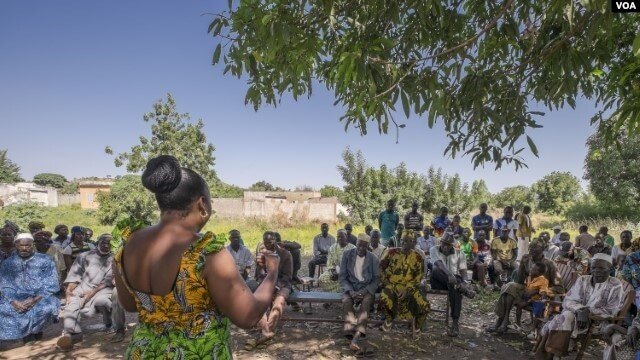
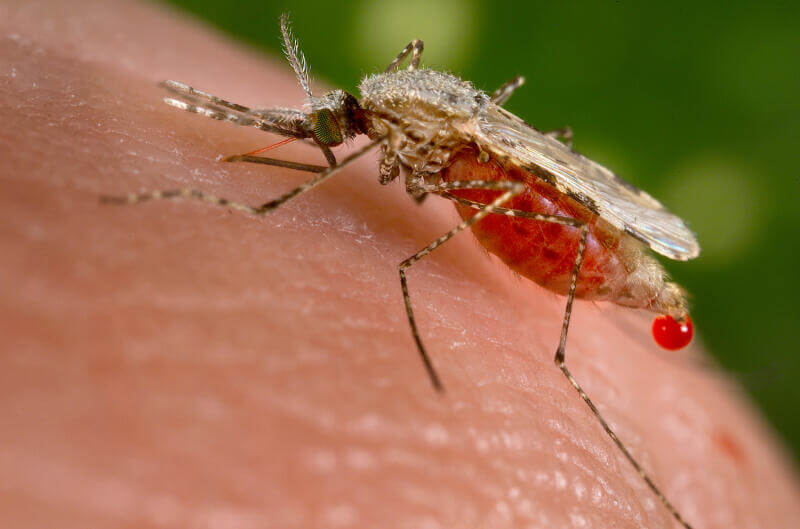
Media Coverage – 05 July 2019
Au Burkina, un premier lâcher de moustiques génétiquement modifiés crée la polémique
Read more

Publication – 20 April 2019
Knowledge engagement in gene drive research for malaria control
Sarah Hartley, Delphine Thizy, Katie Ledingham, Mamadou Coulibaly, Abdoulaye Diabaté, Bakara Dicko, Samba Diop, Jonathan Kayondo, Annet Namukwaya, Barry Nourou, Léa Paré Toé. Knowledge engagement in gene drive research for...
Read more
Publication – 20 April 2019
Guidance on stakeholder engagement practices to inform the development of area-wide vector control methods
Delphine Thizy, Claudia Emerson, Johanna Gibbs, Sarah Hartley, Lydia Kapiriri, James Lavery, Jeantine Lunshof, Janine Ramsey, Julie Shapiro, Jerome Amir Singh, Lea Pare Toe, Isabelle Coche, Benjamin Robinson. Guidance on...
Read more
Publication – 20 April 2019
Sustainable innovation in vector control requires strong partnerships with communities
Frederic Bartumeus, Guilherme B. Costa, Roger Eritja, Ann H. Kelly, Marceline Finda, Javier Lezaun, Fredros Okumu, M. Megan Quinlan, Delphine C. Thizy, Léa Paré Toé, Megan Vaughan. Sustainable innovation in...
Read more
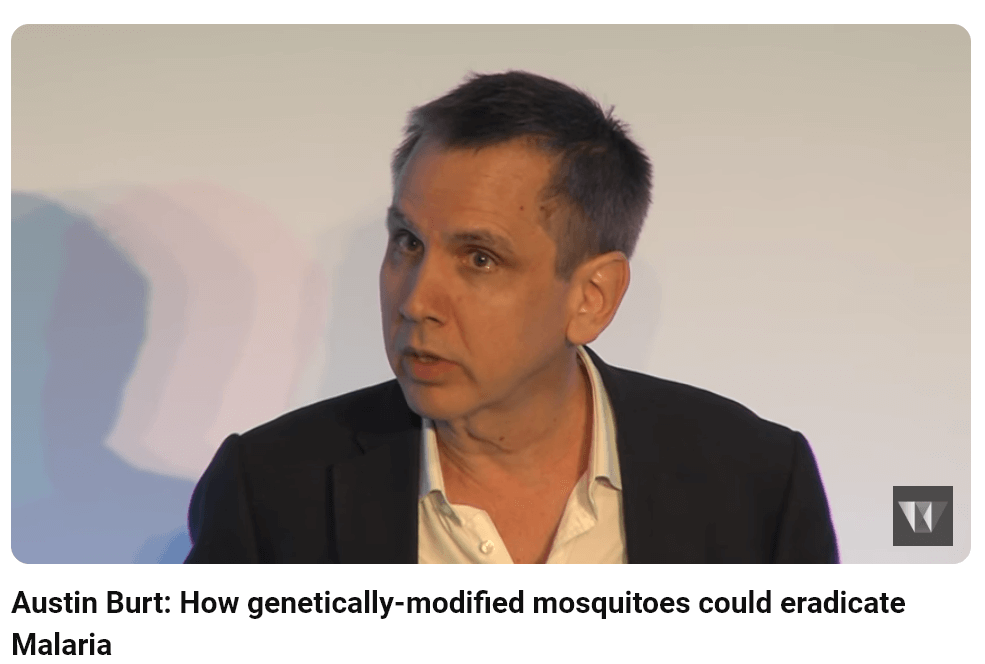
Media Coverage – 10 April 2019
Austin Burt: How genetically-modified mosquitoes could eradicate Malaria
Read more

Blog – 04 December 2018
Feedback on the Convention on Biological Diversity
...interest groups. The discussion highlighted the potential benefits of these technologies as well as the request responsible research. On 29th, the final text was approved by the parties. It...
Read moreBlog – 23 November 2018
Burkina Faso is getting ready for its next stage of research – sterile male mosquito release
...the video below to learn more about our stakeholder engagement work with local participant in the neighbourhood of the Institut de Recherche en Sciences de la Santé in Bobo-Dioulasso. https://www.youtube.com/watch?v=ZuhVLw5LEQI...
Read more
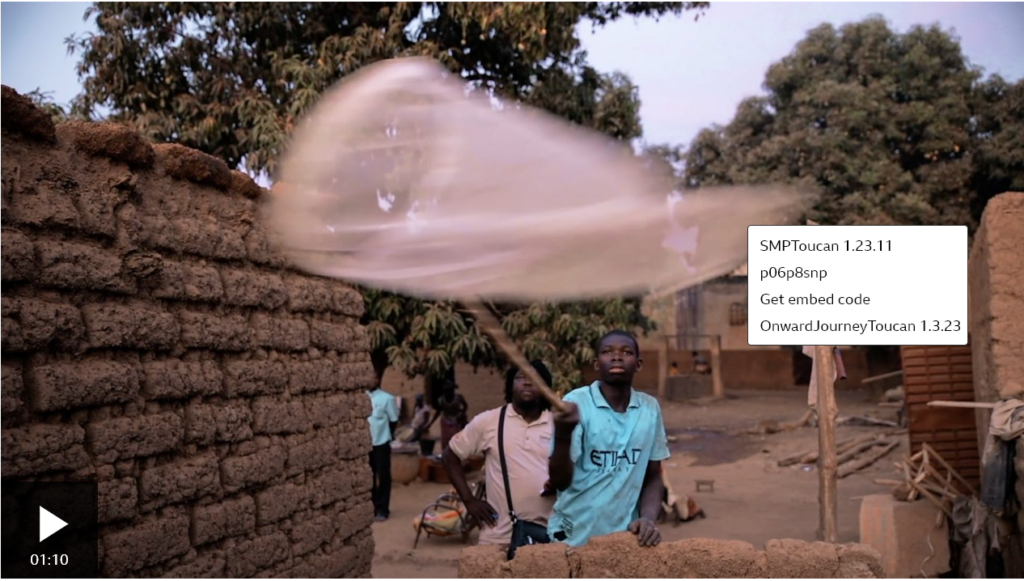

Media Coverage – 26 September 2018
A genetically modified organism could end malaria and save millions of lives — if we decide to use it
Read more

Publication – 03 September 2018
The African Union’s report on “Gene Drives for malaria control and elimination in Africa”
The African Union’s report on “Gene Drives for malaria control and elimination in Africa” ...
Read morePublication – 20 July 2018
Effects of the removal or reduction in density of the malaria mosquito, Anopheles gambiae s.l., on interacting predators and competitors in local ecosystems
Collins, C.M., Bonds, J.A.S., Quinlan, M.M., Mumford, J.D. (2018) . Effects of the removal or reduction in density of the malaria mosquito, Anopheles gambiae s.l., on interacting predators and competitors...
Read more
Blog – 06 July 2018
Our stakeholder engagement approach in Uganda
...approved by the Ugandan Virus Research Institute’s ethics committee and by the Ugandan National Council for Science and Technology. Our engagements activities have mainly been focused on the communities in...
Read morePublication – 14 June 2018
Pathway to Deployment of Gene Drive Mosquitoes as a Potential Biocontrol Tool for Elimination of Malaria in Sub-Saharan Africa: Recommendations of a Scientific Working Group
Read more
Publication – 04 June 2018
Report of the High-Level African Union Panel on Emerging Technologies (APET) on Gene Drives for Malaria Control and Elimination in Africa
Report of the High-Level African Union Panel on Emerging Technologies (APET) on Gene Drives for Malaria Control and Elimination in Africa. Available in French and in English
Read morePublication – 04 March 2018
Gene editing in an international context: Scientific, economic and social issues across sectors by OECD
Gene editing in an international context: Scientific, economic and social issues across sectors by OECD
Read morePublication – 20 December 2017
Gene drive to reduce malaria transmission in sub-Saharan Africa
Austin Burt, Mamadou Coulibaly, Andrea Crisanti, Abdoulaye Diabate & Jonathan K. Kayondo (2018) Gene drive to reduce malaria transmission in sub-Saharan Africa, Journal of Responsible Innovation, 5:sup1, S66-S80, DOI: 10.1080/23299460.2017.1419410...
Read moreBlog – 07 December 2017
Imperial academic puts community at the heart of malaria elimination project
Professor Austin Burt has been awarded a President’s Medal for his work engaging the public in malaria-control projects across sub-Saharan Africa....
Read moreBlog – 07 December 2017
Channel 4, Fight against malaria has stalled, World Health Organisation says
Progress in the fight against Malaria has stalled, the World Health Organisation warned this week.
Read moreBlog – 07 December 2017
Nature, Genetic engineering: On the road to efficient gene drives
Containment of malaria transmission largely depends on vector control — that is, on eliminating the parasite-transmitting Anopheles mosquito — and gene drives have emerged as a promising approach to achieve...
Read more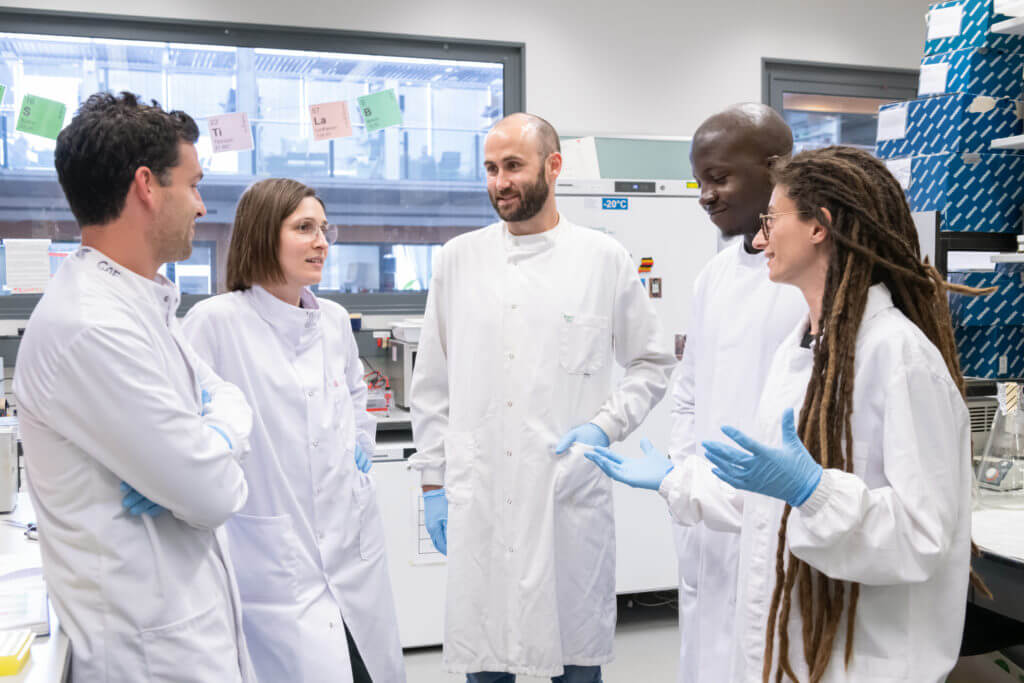
Blog – 07 December 2017
Can Scientists Convince the Public to Accept CRISPR and Gene Drives?
Scientists are trying new ways to win over a skeptical public
Read moreBlog – 07 December 2017
Outwitting nature’s greatest killer
Scientists deploy new weapons to eradicate an age-old enemy: Mosquitoes
Read more

Blog – 16 June 2017
Dr. Abdoulaye Diabaté give us an insight into Target Malaria’s team work in Burkina Faso
...then submitted an application of importation to the NAB which was approved after a thorough evaluation and review of the dossier. Alongside the renovations and submission, the team in country...
Read moreBlog – 10 May 2017
SciDev, GM drive against malaria: Treading a fine line, April 2017
An international group of scientists is pushing a groundbreaking DNA editing programme known as “mosquito gene drive” for a long-term solution to the spread of malaria in Africa.
Read moreBlog – 10 May 2017
Stat News, In a remote West African village, a revolutionary genetic experiment is on its way — if residents agree to it, March 2017
BANA, Burkina Faso — This small village of mud-brick homes in West Africa might seem the least likely place for an experiment at the frontier of biology.
Read moreBlog – 10 May 2017
Wired, Illustrated experiment: modifying mosquitoes to save millions of lives, March 2017
Malaria, a disease transmitted by a type of mosquito called Anopheles, kills 500,000 people every year, most of them in Africa. But Andrea Crisanti, professor of molecular parasitology at London’s...
Read moreBlog – 10 May 2017
The Scientist , Using gene drive to limit the spread of malaria , January 2017
Introducing genetic changes into mosquito populations could be key to effective malaria control.
Read moreBlog – 10 May 2017
The New Yorker, Rewriting the code of life, January 2017
Through DNA editing, researchers hope to alter the genetic destiny of species and eliminate diseases.
Read moreBlog – 10 May 2017
Nature, ‘Gene drive’ moratorium shot down at UN biodiversity meeting, January 2017
Freeze on genetic technology would have been a disaster, say scientists, but activists plan to renew the fight.
Read more
Publication – 03 May 2017
Discussion paper of the Australian Academy of Science on synthetic gene drives in Australia
Discussion paper of the Australian Academy of Science on synthetic gene drives in Australia. ...
Read more
Publication – 03 May 2017
The High Council for Biotechnology (HCB) published its views on the use of genetically modified mosquitoes for vector control
The High Council for Biotechnology (HCB) published its views on the use of genetically modified mosquitoes for vector control. Paris, 31 May 2017 ...
Read more
Publication – 03 May 2017
Professor Austin Burt has been awarded a President’s Medal for his work engaging the public in malaria-control projects across sub-Saharan Africa
Professor Austin Burt has been awarded a President’s Medal for his work engaging the public in malaria-control projects across sub-Saharan Africa. ...
Read more
Blog – 20 February 2017
Our team development
...team expansion was to include stakeholder engagement officers at this still very early stage to co-develop the technology and gain stakeholder buy in localy, nationaly and internationaly. Our team has...
Read more
Publication – 18 December 2016
Impact of mosquito gene drive on malaria elimination in a computational model with explicit spatial and temporal dynamics
Impact of mosquito gene drive on malaria elimination in a computational model with explicit spatial and temporal dynamics...
Read more
Publication – 03 December 2016
Use of Gene Drive technology in Mosquitoes to reduce the burden of malaria in Africa: A systematic evaluation of the risks
Use of Gene Drive technology in Mosquitoes to reduce the burden of malaria in Africa: A systematic evaluation of the risks ...
Read more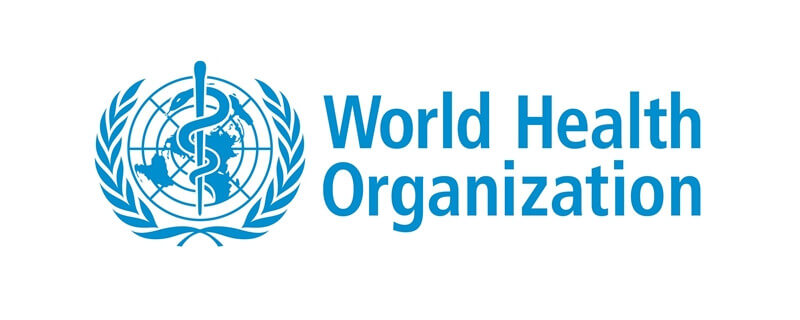
Publication – 03 November 2016
WHO World Malaria Report 2016
WHO World Malaria Report 2016 ...
Read moreBlog – 14 October 2016
How to Develop This Cutting-Edge Genetic Research Responsibly
From ancient soothsayers to Wall Street stock pickers, humans have always yearned to be able to tell the future. The ability, needless to say, has mostly been overstated.
Read moreBlog – 14 October 2016
Mosquitoes Are Deadly, So Why Not Kill Them All?
The death toll from diseases carried by mosquitoes is so huge that scientists are working on a radical idea. Why not eradicate them?
Read moreBlog – 11 October 2016
New report highlights ethical questions linked to genome editing
...we look forward to more coming from the Council in the coming months. For a good overview of the issues at stake, look at the short (or long!) version online...
Read more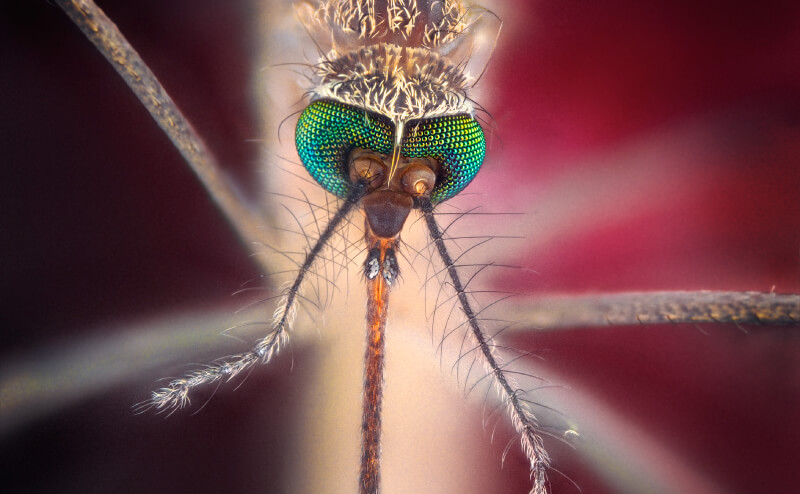
Publication – 18 September 2016
Comparison of Model Predictions and Laboratory Observations of Transgene Frequencies in Continuously-Breeding Mosquito Populations
Comparison of Model Predictions and Laboratory Observations of Transgene Frequencies in Continuously-Breeding Mosquito Populations...
Read morePublication – 04 September 2016
Genome Editing: an ethical review by Nuffield Council on Bioethics
Genome Editing: an ethical review by Nuffield Council on Bioethics
Read morePublication – 18 August 2016
A CRISPR-Cas9 sex-ratio distortion system for genetic control
A CRISPR-Cas9 sex-ratio distortion system for genetic control...
Read morePublication – 04 July 2016
Gene Drives on the Horizon: Advancing Science, Navigating Uncertainty, and Aligning Research with Public Values
Read more
Blog – 26 April 2016
Ending Malaria For Good
Early in my career, I was galvanized by a disease that ravaged my country and many others around the world: malaria.
Read moreBlog – 26 April 2016
The Extinction Invention
Malaria kills half a million people each year, mostly children in tropical Africa. The price tag for eradicating the disease is estimated at more than $100 billion over 15 years.
Read moreBlog – 26 April 2016
Nature special report on Crispr
Researchers the world over are fast adopting CRISPR-Cas9 to tinker with the genomes of humans, viruses, bacteria, animals and plants. Nature brings together research, reporting and expert opinion to keep...
Read morePublication – 18 April 2016
Gene drive through a landscape: Reaction-diffusion models of population suppression and elimination by a sex ratio distorter
Gene drive through a landscape: Reaction-diffusion models of population suppression and elimination by a sex ratio distorter...
Read morePublication – 18 March 2016
United Nations Foundation – SDG Goal 3: Ensure healthy lives and promote well-being for all at all ages
Read more
Publication – 18 January 2016
A CRISPR-Cas9 gene drive system targeting female reproduction in the malaria mosquito vector Anopheles gambiae
A CRISPR-Cas9 gene drive system targeting female reproduction in the malaria mosquito vector Anopheles gambiae...
Read morePublication – 03 January 2016
United Nations Foundation – Sustainable Development Goals
UN Foundation – Sustainable Development Goals...
Read more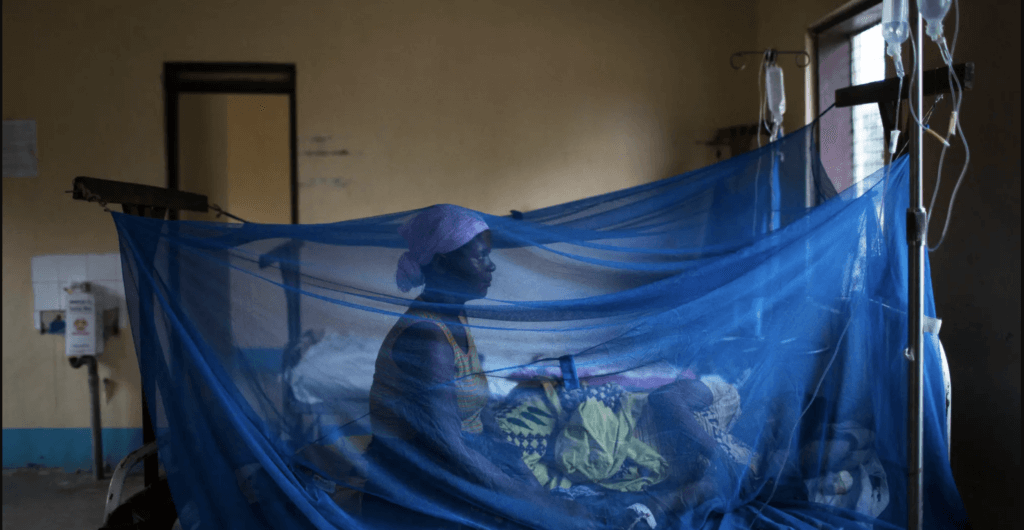
Media Coverage – 21 December 2015
Gene Drives Offer New Hope Against Diseases and Crop Pests
Read more
Blog – 17 December 2015
Stepping up GM insect research a ‘moral duty’ for UK says Lords committee
Report concludes new technologies could save lives from diseases such as malaria, but says development is slowed by inadequate regulatory system
Read moreBlog – 17 December 2015
Gene-Editing Technology Could Help Eradicate Malaria, Study Shows
A groundbreaking but controversial new gene-editing technology is accelerating a push to eradicate malaria, with scientists recently identifying two ways to block mosquitoes from transmitting the killer disease.
Read more
Publication – 01 December 2015
Rapport de l’OMS sur le paludisme dans le monde 2015
WHO World Malaria Report 2015 ...
Read moreBlog – 02 November 2015
Eradicating disease
To exterminate a living species by accident is normally frowned on. To do so deliberately might thus seem an extraordinary sin. But if that species is Plasmodium falciparum, the sin...
Read more
Publication – 03 October 2015
Professor Austin Burt talks about the Capabilities and Tradeoffs of Gene Drive Techniques at The National Academy of Sciences
...
Read morePublication – 04 September 2015
From Aspiration to Action: What will it take to end malaria?
Read more
News – 25 August 2015
Science Magazine, “Safeguarding gene drive experiments in the laboratory”, July 2015
Multiple strategies are needed to ensure safe gene drive experiments.
Read moreNews – 04 August 2015
BBC, “GM lab mosquitoes may aid malaria fight”, June 2014
Scientists have created mosquitoes that produce 95% male offspring, with the aim of helping control malaria. Flooding cages of normal mosquitoes with the new strain caused a shortage of females...
Read moreNews – 04 August 2015
Sky News “ New GM Mosquito ‘Could Help Defeat Malaria’, June 2014 (broadcast and online)
Scientists believe a new strain of mosquito that produces almost entirely male offspring could turn the tables in the fight against malaria.
Read moreNews – 04 August 2015
Al Jazeera News, Breakthrough claimed in malaria eradication, June 2014 (broadcast and online)
UK scientists think genetic modification will help check female population of mosquito species that spreads the disease.
Read moreNews – 04 August 2015
Royal Society Pfizer Award for IVCC partner, Nov. 4, 2013
A long-time collaborator of IVCC and LSTM has been awarded this year’s Royal Society Pfizer Award for his malaria research. Dr Abdoulaye Diabate, who is investigating the mating systems of...
Read moreNews – 04 August 2015
Imperial College, “Scientists prove new technology to control malaria-carrying mosquitoes”, April 2011
In today’s study, published in Nature, researchers from Imperial College London and the University of Washington, Seattle have demonstrated how some genetic changes can be introduced into large laboratory mosquito...
Read moreNews – 04 August 2015
Guardian, “Scientists create GM mosquitoes to fight malaria and save thousands of lives”, October 2005
Genetically modified mosquitoes could soon be released into the wild in an attempt to combat malaria. Scientists at Imperial College London, who created the GM insects, say they could wipe...
Read morePublication – 02 July 2015
Speacial report FT Health: Combating Malaria by Financial Times
Financial Times
Read moreBlog – 05 May 2015
Fight intensifies against malaria
...or the urban shanties of Haiti, new tools and tactics are being used to counter the spread of the disease and to alleviate its huge economic and human costs. http://www.ft.com/intl/cms/s/0/73b423ce-d3cc-11e4-99bd-00144feab7de.html#axzz3YovVBSPa...
Read moreBlog – 05 May 2015
World Malaria Day: call to close gaps in prevention and treatment to defeat malaria
...and treatment of malaria. Despite dramatic declines in malaria cases and deaths since 2000, more than half a million lives are still lost to this preventable disease each year. http://www.who.int/mediacentre/news/releases/2015/world-malaria-day-2015/en/...
Read moreBlog – 05 May 2015
Invest in the Future, Defeat Malaria: My Stroll With Dr Fatoumata Nafo-Traore
Dr Fatoumata Nafo-Traore, the Executive Director of the Roll Back Malaria Partnership talks aboutmalaria. Dr. Nafo-Traore has more than 25 years of experience in public health, both in her native...
Read moreBlog – 05 May 2015
Malaria kills 1,200 children a day: UNICEF
UNICEF’s ‘Facts about Malaria and Children’ shows the extensive impact of the disease on children and on pregnant women around the world. This year’s World Malaria Day theme is “Invest...
Read moreBlog – 05 May 2015
Time has come to cast net wider as pesticide resistance grows
The humble lightbulb is not often counted among the tools used to fight infectious disease. But, as questions hang over the efficacy of the insecticide-treated mosquito net, some argue that...
Read moreBlog – 05 May 2015
World malaria day quiz
Half the world’s population is at risk from malaria, but how much do you know about the disease? Test your knowledge with this quiz created by Malaria No More...
Read moreBlog – 05 May 2015
We Can Eradicate Malaria—Within a Generation
Bill Gates believes it is not only possible to eradicate malaria, he believes is necessary. On this blog post, he shares the strategy he proposes to achieve this mission.
Read more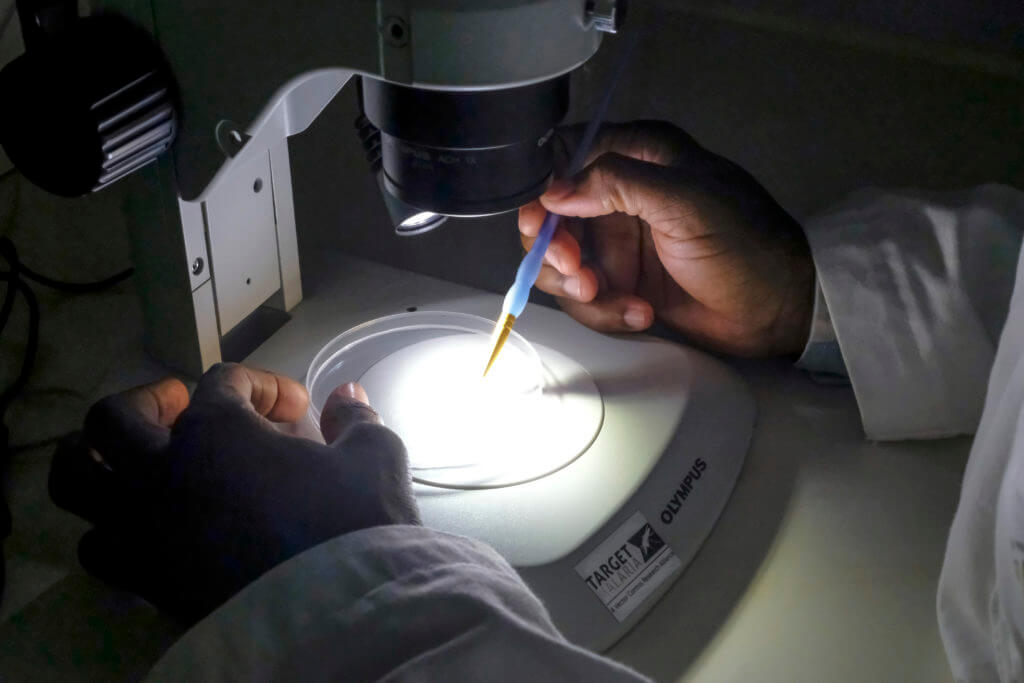
Blog – 05 May 2015
Delivery of new anti-malaria drugs to developing countries is vital in fight against the disease
...April. Medicines for Malaria Venture (MMV), a public-private partnership that seeks to develop and facilitate the delivery of quality anti-malaria drugs at affordable prices to people in developing countries. http://www.pharmaceutical-journal.com/opinion/qa/david-reddy-delivery-of-new-anti-malaria-drugs-to-developing-countries-is-vital-in-fight-against-the-disease/20068403.article...
Read more
Publication – 18 February 2015
Mosquito genomics. Highly evolvable malaria vectors: the genomes of 16 Anopheles mosquitoes.
Mosquito genomics. Highly evolvable malaria vectors: the genomes of 16 Anopheles mosquitoes....
Read more

Publication – 18 June 2014
A synthetic sex ratio distortion system in the human malaria mosquito
A synthetic sex ratio distortion system in the human malaria mosquito
Read more
Publication – 18 June 2014
A synthetic sex ratio distortion system for the control of the human malaria mosquito
A synthetic sex ratio distortion system for the control of the human malaria mosquito
Read more
Publication – 18 May 2014
Site-specific genetic engineering of the Anopheles gambiae Y chromosome
Site-specific genetic engineering of the Anopheles gambiae Y chromosome...
Read more
Publication – 05 November 2013
Infertility resulting from transgenic I-PpoI male Anopheles gambiae in large cage trials
Infertility resulting from transgenic I-PpoI male Anopheles gambiae in large cage trials. T A Klein 1 , N Windbichler, A Deredec, A Burt, M Q Benedict...
Read more
Publication – 18 July 2013
Modelling the spatial spread of a homing endonuclease gene in a mosquito population
Modelling the spatial spread of a homing endonuclease gene in a mosquito population
Read more
Publication – 18 November 2012
Mosquito ecology and control of malaria
Mosquito ecology and control of malaria J. Anim. Ecol. 82(1):15-25
Read more
Publication – 21 October 2011
Requirements for effective malaria control with homing endonuclease genes
Deredec A, Godfray HC, Burt A “Requirements for effective malaria control with homing endonuclease genes” Proc. Natl. Acad. Sci. USA 108(43):E874-80...
Read more
Publication – 14 April 2011
Tapping natural reservoirs of homing endonucleases for targeted gene modification
Tapping natural reservoirs of homing endonucleases for targeted gene modification
Read more
Publication – 14 April 2011
A synthetic homing endonuclease-based gene drive system in the human malaria mosquito
A synthetic homing endonuclease-based gene drive system in the human malaria mosquito
Read more
Publication – 14 October 2005
An Anopheles transgenic sexing strain for vector control
Catteruccia F, Benton JP, Crisanti A “An Anopheles transgenic sexing strain for vector control” Nature Biotechnology (2005) 23, 1414 – 1417...
Read more